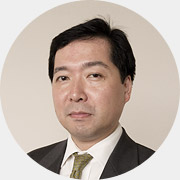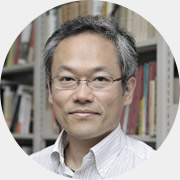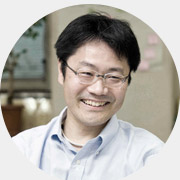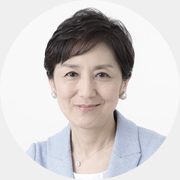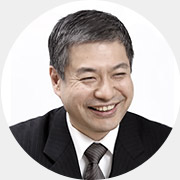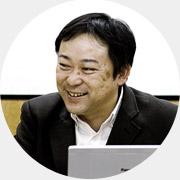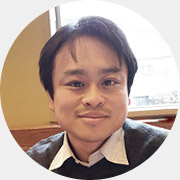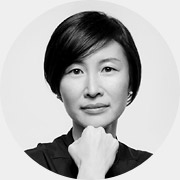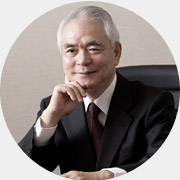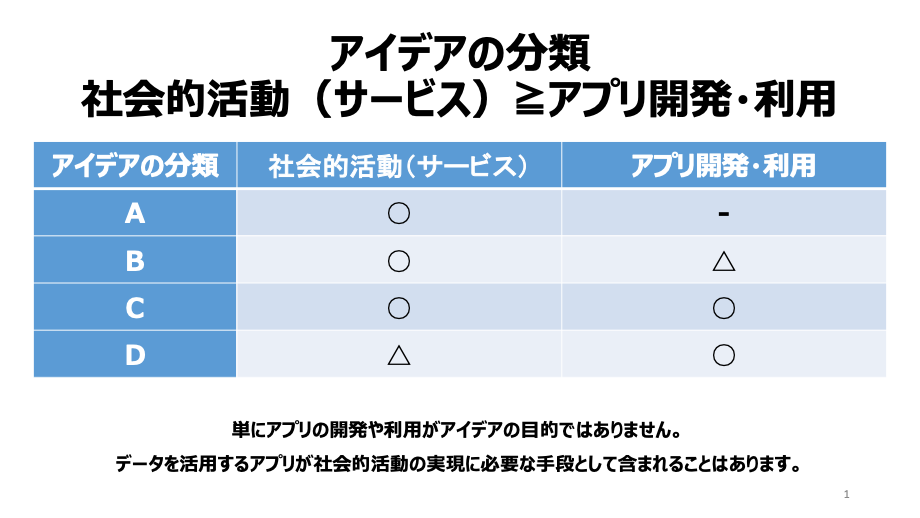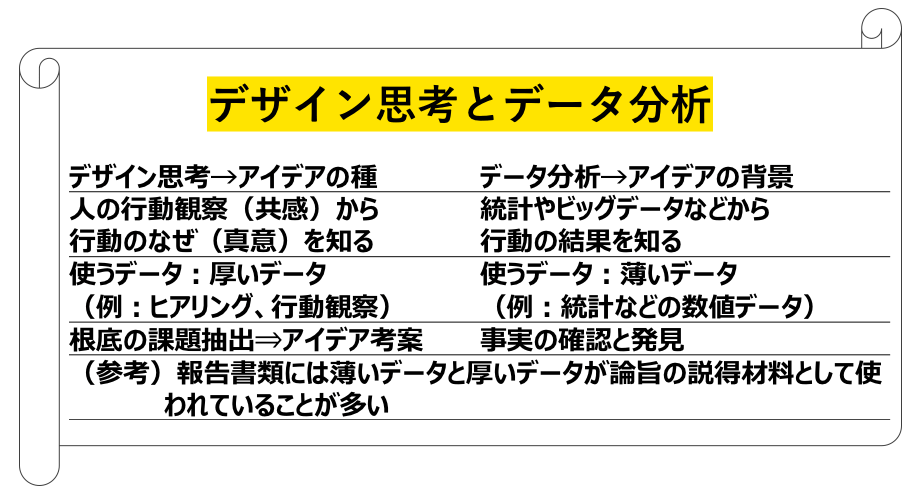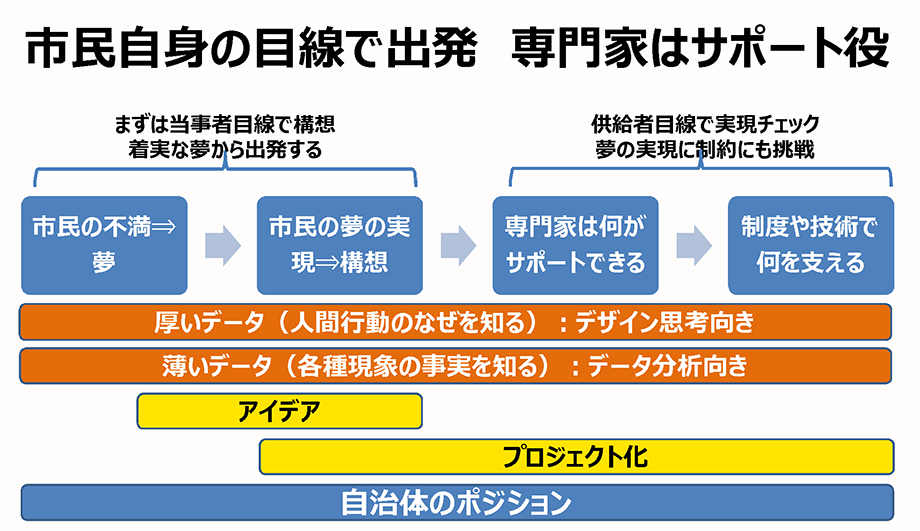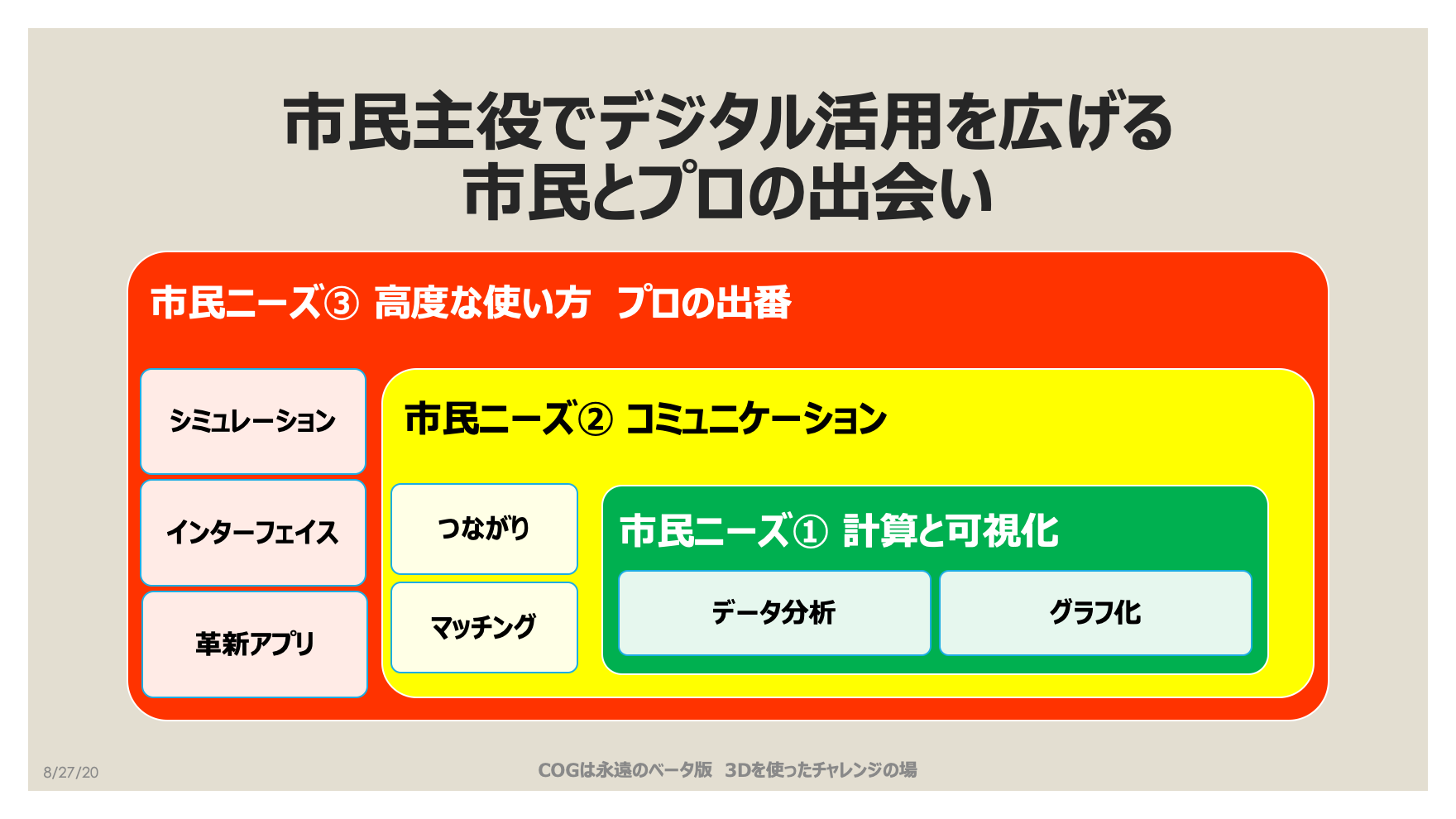Primary screening results一次選考結果
As a result of the primary screening process based on submitted documents review, the COG2021 Steering Committee has decided to treat the applicants at the public review event scheduled for March 6, as follows:
- - 11 teams were qualified for the COG2021 final public review
- - 10 teams were qualified for the COG2021 mini-presentations
- - 20 teams were designated as the presenters in the COG2021 poster exhibition
Out of the 41 ideas submitted, the following 11 ideas were eligible for the final public review!
A list of all ideas can be found here.
List of the 11 teams qualified for the COG2021 Final Public Review (in order of region: from north to south)
-
Tea POD -Prevention of Disaster-
Bunkyo Ward, Tokyo Metropolis
5. Crime Prevention, Disaster Prevention
Local issue: On the selection of evacuation methods in Bunkyo Ward in face of an earthquake
Idea name: PODchat for Bunkyo Ward citizens
-
Yokohama Universal Tourism Desk
Yokohama City, Kanagawa Prefecture
9. Issues in view of the social changes that COVID-19 will bring about
Local issue: Achieving the wellbeing of every citizen of Yokohama during the long-term Coronavirus pandemic
Idea name: Data standardization for the barrier-free facilities in the city: so that we don't have to worry about multi-purpose restrooms and congestion
-
Immigrant Human Resource Bank
Toyohashi City, Aichi Prefecture
3. Urban development, Transportation 7. Civic pride, Tourism
Local issue: To make Toyohashi City a "City of Choice". Hope to increase immigration, settlement, and outside people with connected mind !
Idea name: Toyohashi City x Urban Middle and Senior Citizens = Creation of "Population + Added Value"!
-
Nexus Biwaichi
Nagahama City, Shiga Prefecture
3. Urban development, Transportation 7. Civic pride, Tourism
Local issue: Promoting local community building where the youth can take on challenges while having fun
Idea name: TRUE - making high school students' dreams a reality
-
NAGAHAMA BLACKS
Nagahama City, Shiga Prefecture
3. Urban development, Transportation 7. Civic pride, Tourism
Local issue: Promoting local community building where the youth can take on challenges while having fun
Idea name: Project Don Don Business Trips
-
Team Creating "fun in the day-to-day" within the local community
Omi Hachiman City, Shiga Prefecture
1. Aging Society, Nursing Care, Medical Care, Health 3. Urban development, Transportation
Local issue: Securing access to basic infrastructure to continue living in hometown areas
Idea name: Project Why Not Have Them Come for the Infrastructure
-
bc-life Oni-ni-Kanabo
Kusatsu City, Shiga Prefecture
1. Aging Society, Nursing Care, Medical Care, Health 2. Child-rearing, Family, and Education
Local issue: Promoting citizen health and fitness
Idea name: Aim for 20,000 people undergoing medical examination! Tornado Daisakusen ★ The beginning of a wonderful circle
-
Team University of Hyogo Graduate School BM
Kakogawa City, Hyogo Prefecture
3. Urban development, Transportation 7. Civic pride, Tourism
Local issue: Watching over elderly people with declining cognitive function
Idea name: Machinaka Diversity Kakogawa - Health Promotion of the Elderly through Social Interactions and Kaizen of Learning Environment for Children
-
Local Industry PR Team, STEAM Special Lecture, Hyogo Prefectural Kakogawa Higashi High School
Kakogawa City, Hyogo Prefecture
2. Child-rearing, Family, and Education
Local issue: Passing down the Kunikane fittings technique - the best tradition in Kakogawa City
Idea name: KAKOGAWA KUTSUSHITA Project
-
MachiCare Rolling Stock Study Group
Kurashiki City, Okayama Prefecture
2. Child-rearing, Family, and Education
Local issue: Initiatives to familiarize students with school lunches
Idea name: Parents-Students School Lunch Logbook
-
DIJI SHURI
Naha City, Okinawa Prefecture
2. Child-rearing, Family, and Education 3. Urban development, Transportation 7. Civic pride, Tourism 8. Smart City, Smart Citizen 9. Issues in view of the social changes that COVID-19 will bring about
Local issue: Promotion of collaborative creation with diverse actors for the reconstruction of Shuri Castle
Idea name: DIJI SHURI – XR Future City Shuri
List of the 10 teams qualified for the COG2021 mini-presentations (in order of local area)
-
natures
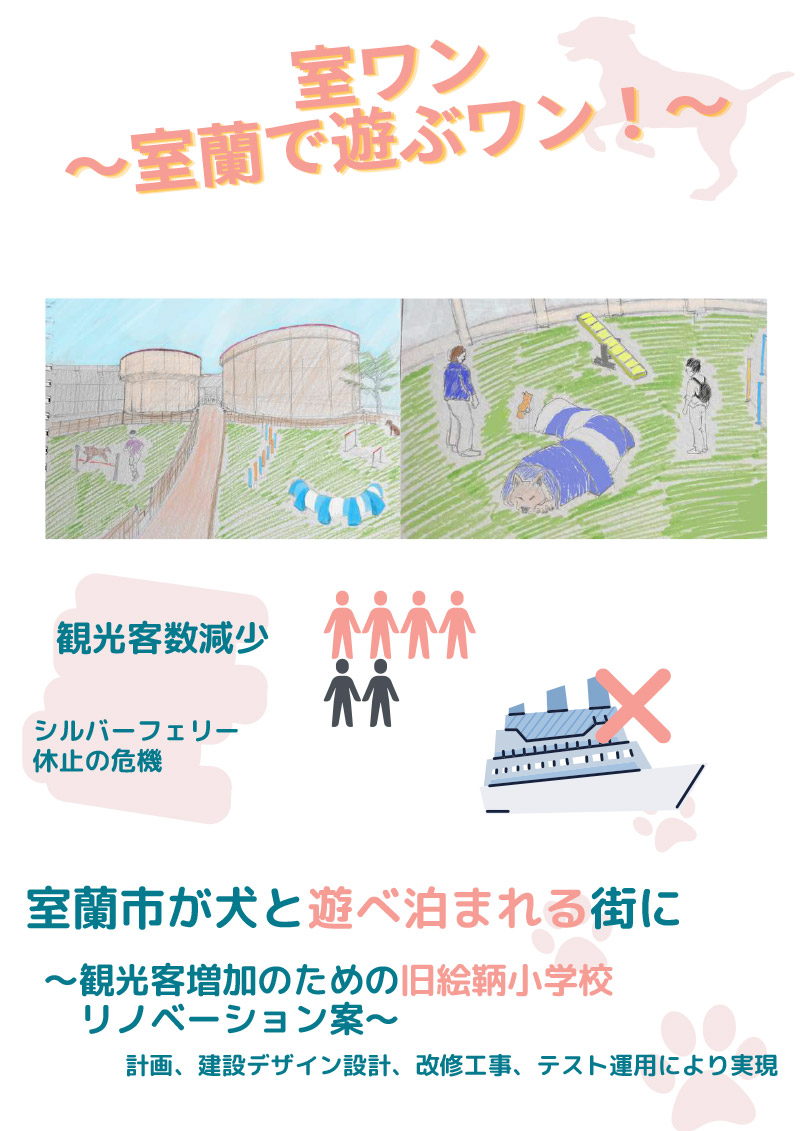
-
MaTI Planning Group
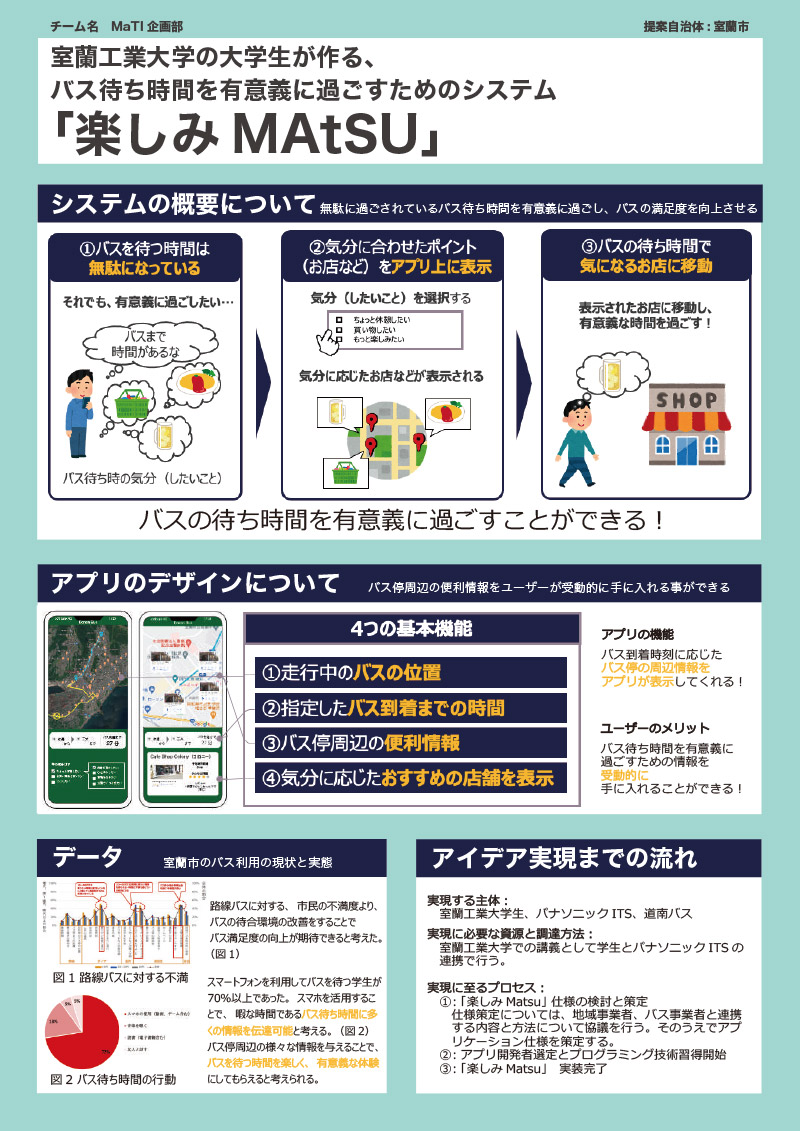
MaTI Planning Group
Muroran City, Hokkaido
Local issue: Make Muroran's transportation more convenient!
Idea name: 室蘭工業大学の大学生が作る、バス待ち時間を有意義に過ごすためのシステム 「楽しみMAtSU」
 PDFを表示
PDFを表示
-
Community Development Project with Meals
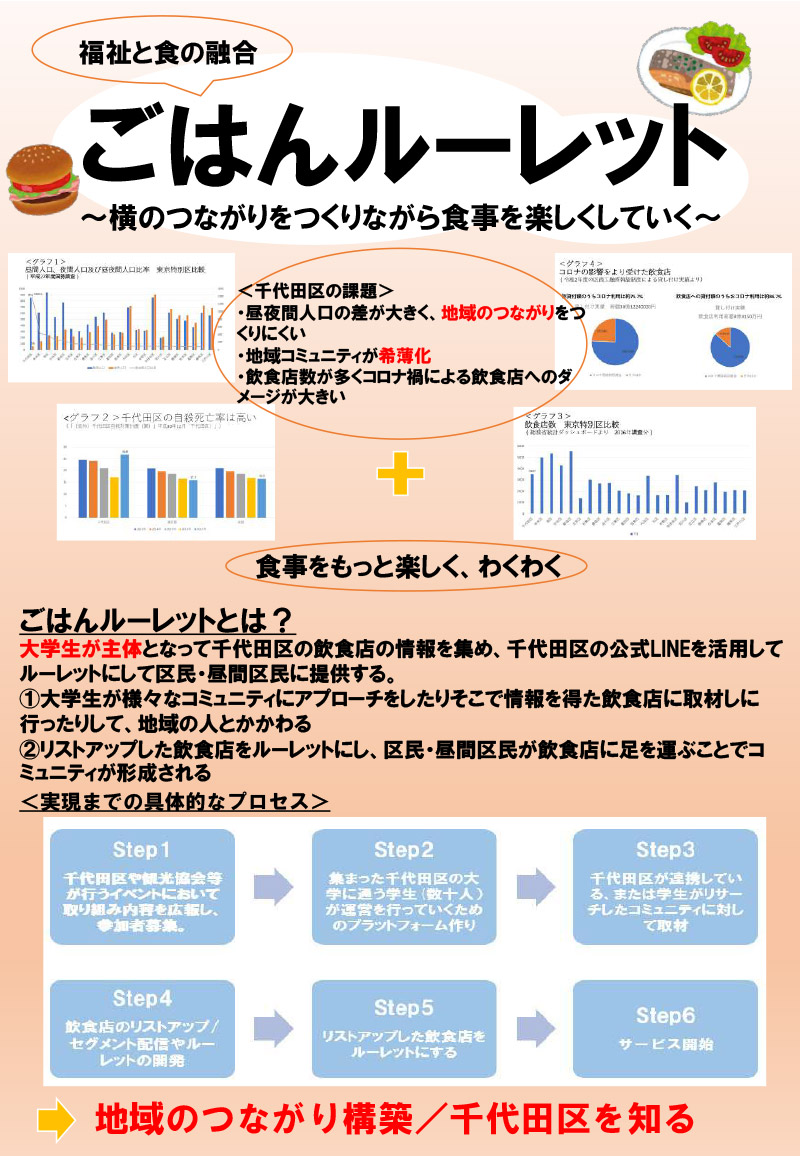
Community Development Project with Meals
Chiyoda Ward, Tokyo
Local issue: Improvement of Regional Strengths Based on the Characteristics of Chiyoda Ward
Idea name: Gohan Roulette – Making meals fun while creating horizontal connections.
 PDFを表示
PDFを表示
-
Food Loss Team, Ochanomizu University Senior High School
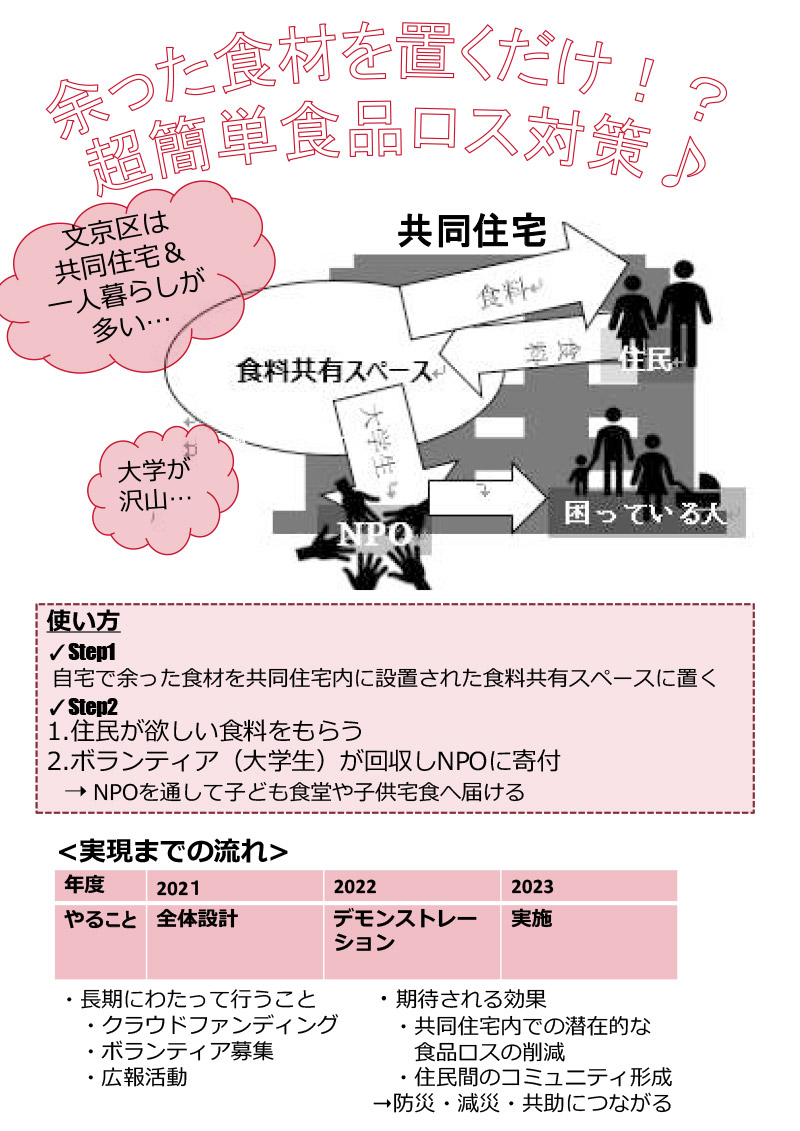
Food Loss Team, Ochanomizu University Senior High School
Bunkyo Ward, Tokyo
Local issue: 文京区における食品ロス問題とその啓発方法について
Idea name: 文京区の特徴を生かした食品ロス対策~共同住宅に注目して~
 PDFを表示
PDFを表示
-
Food Loss Seminar, Department of International Agricultural Development, Tokyo University of Agriculture
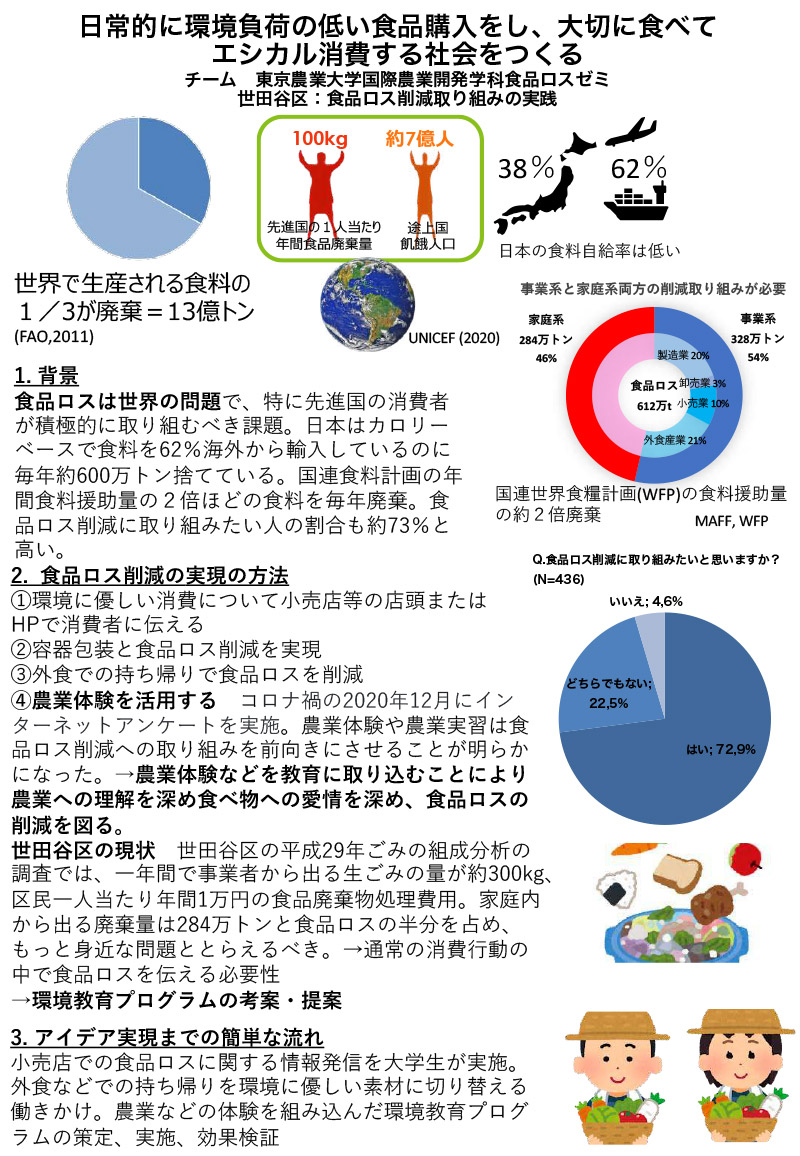
Food Loss Seminar, Department of International Agricultural Development, Tokyo University of Agriculture
Setagaya Wards, Tokyo
Local issue: 食品ロス削減取り組みの実践
Idea name: 食品ロスをみんなで知って、みんなで減らす。農業などの体験を活かしエシカル消費の街にする。
 PDFを表示
PDFを表示
-
Enjoy Seekers
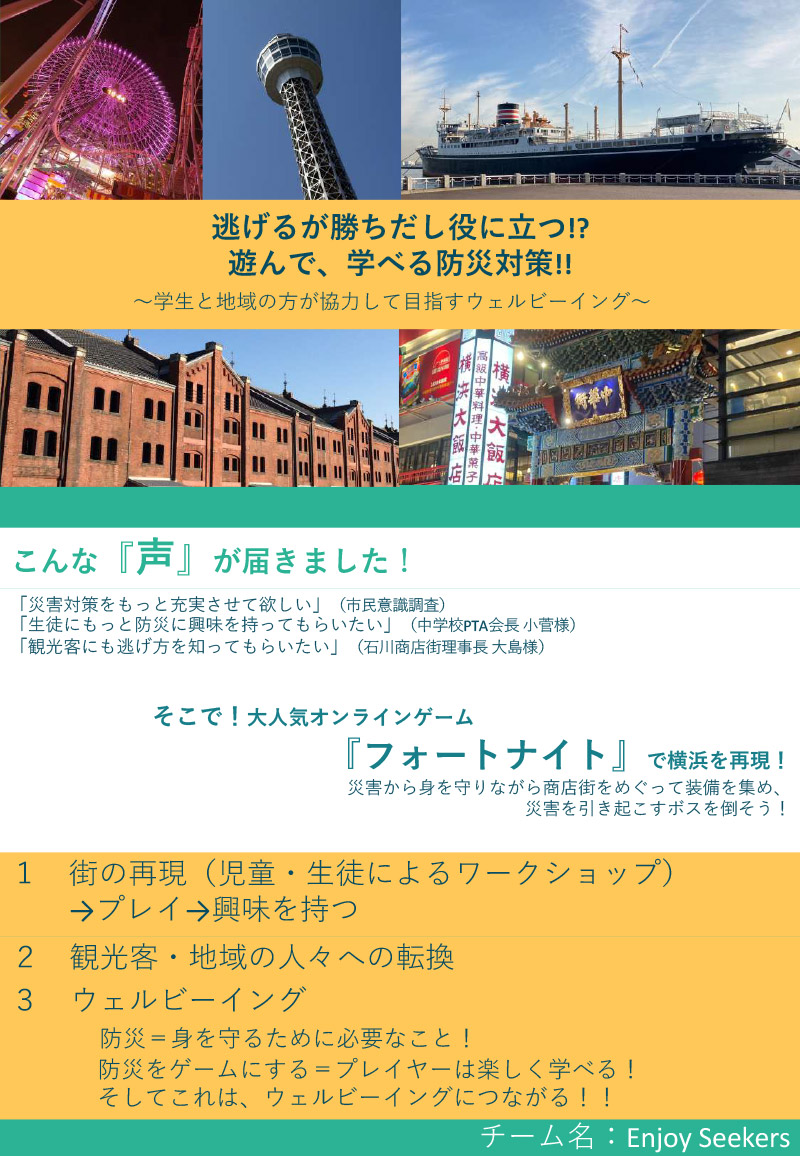
Enjoy Seekers
Yokohama City, Kanagawa Prefecture
Local issue: Achieving the wellbeing of every citizen of Yokohama during the long-term Coronavirus pandemic
Idea name: 逃げるが勝ちだし役に立つ!?遊んで、学べる防災対策!!
 PDFを表示
PDFを表示
-
Music Communication Major MUSE, Osaka College of Music
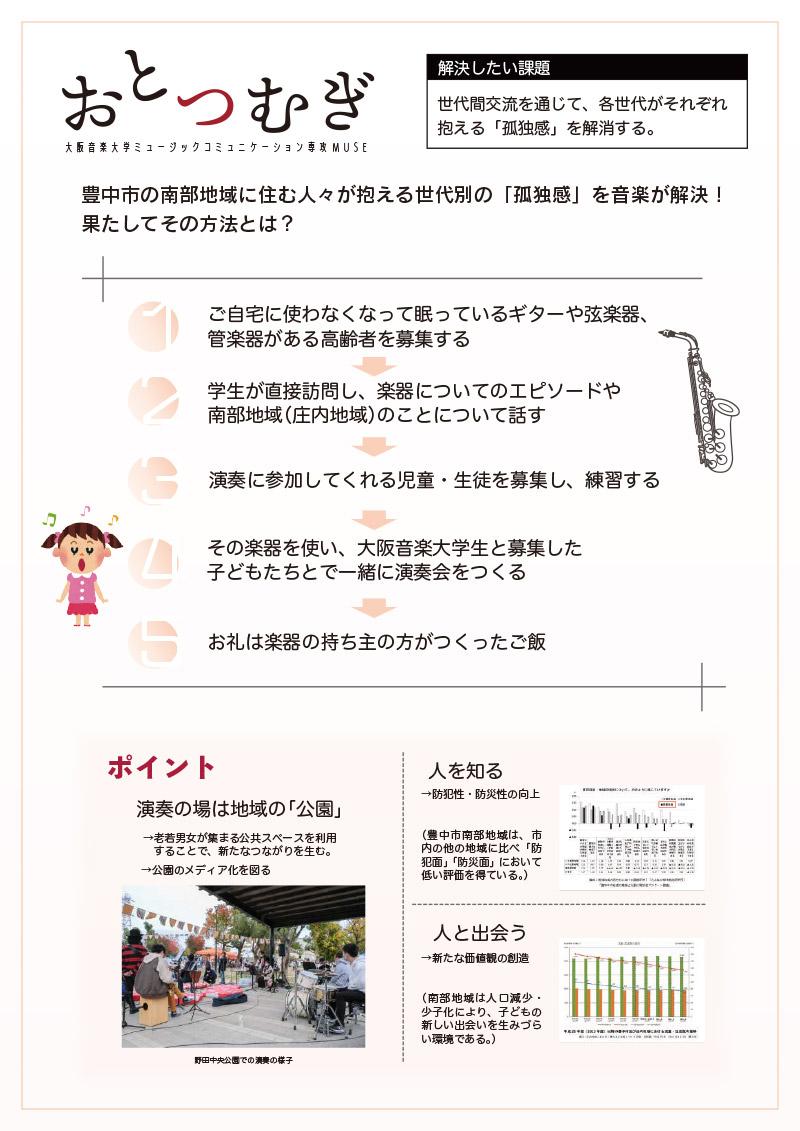
Music Communication Major MUSE, Osaka College of Music
Toyonaka City, Osaka
Local issue: Improving the Attractiveness of the Town by Utilizing Local Resources
Idea name: Ototsumugi
 PDFを表示
PDFを表示
-
TOYOOKA FANS
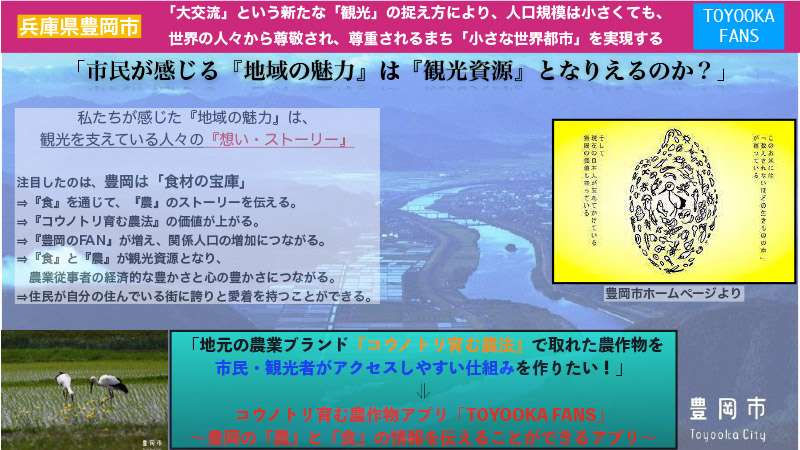
TOYOOKA FANS
Toyo-oka City, Hyogo Prefecture
Local issue: 「大交流」という新たな「観光」の捉え方により、人口規模は小さくても、世界の人々から尊敬され、尊重されるまち「小さな世界都市」を実現する
Idea name: 豊岡版エコツーリズムアプリ「TOYOOKA FANS」~『コウノトリ育む農法』&『豊岡の食』の情報を伝えたい~
 PDFを表示
PDFを表示
-
Sukoburu Vacant House Utilization Team
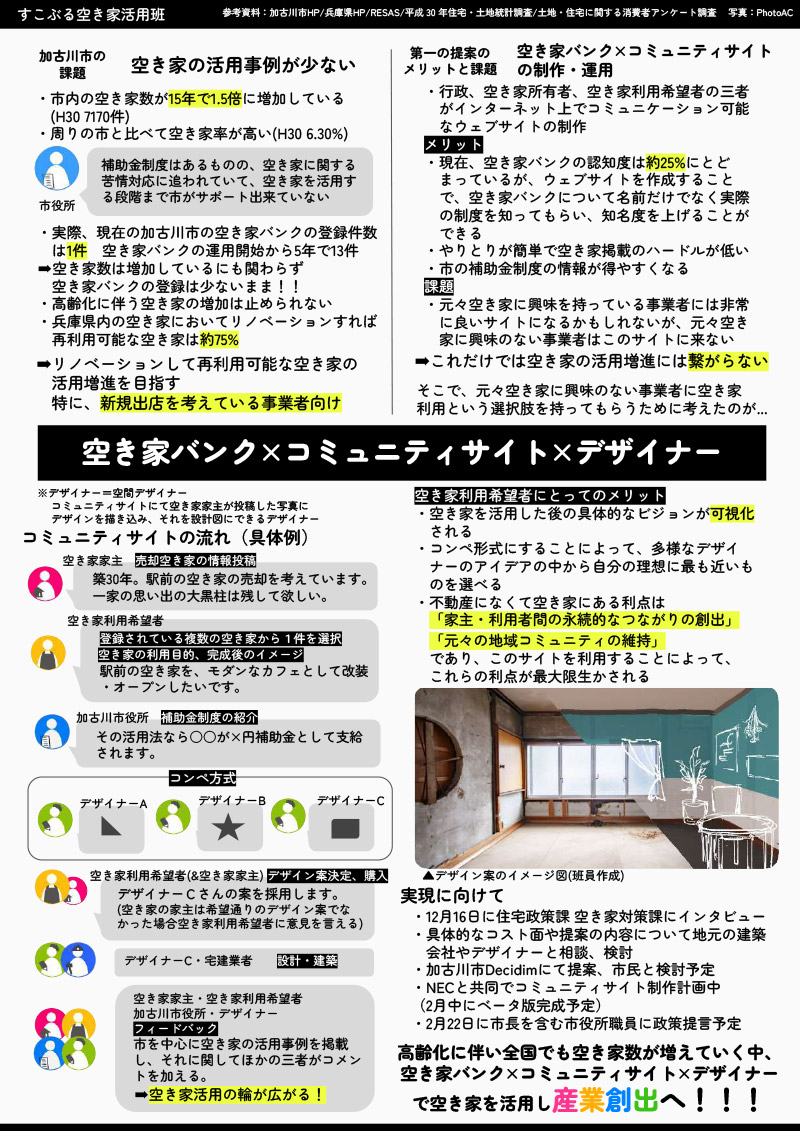
Sukoburu Vacant House Utilization Team
Kakogawa City, Hyogo Prefecture
Local issue: Use of Vacant Houses in Kakogawa City as Study Rooms
Idea name: Vacant house bank x Community website x Designers to create industry!
 PDFを表示
PDFを表示
-
Computer Club, Kagawa High School
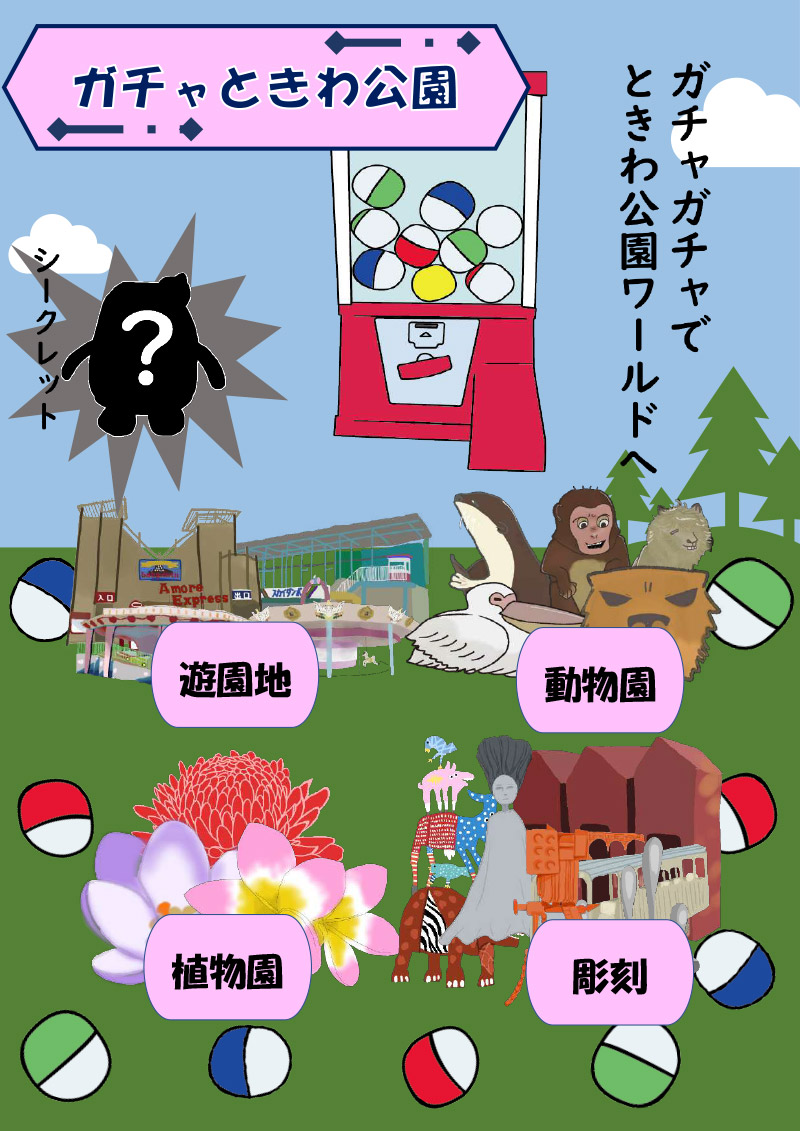
Computer Club, Kagawa High School
Ube City, Yamaguchi Prefecture
Local issue: ときわ公園の観光施設としての魅力向上
Idea name: ガチャときわ公園
 PDFを表示
PDFを表示
List of the 20 teams qualified for COG2021 poster exhibitions (in order of local area)
-
Muroran Whales
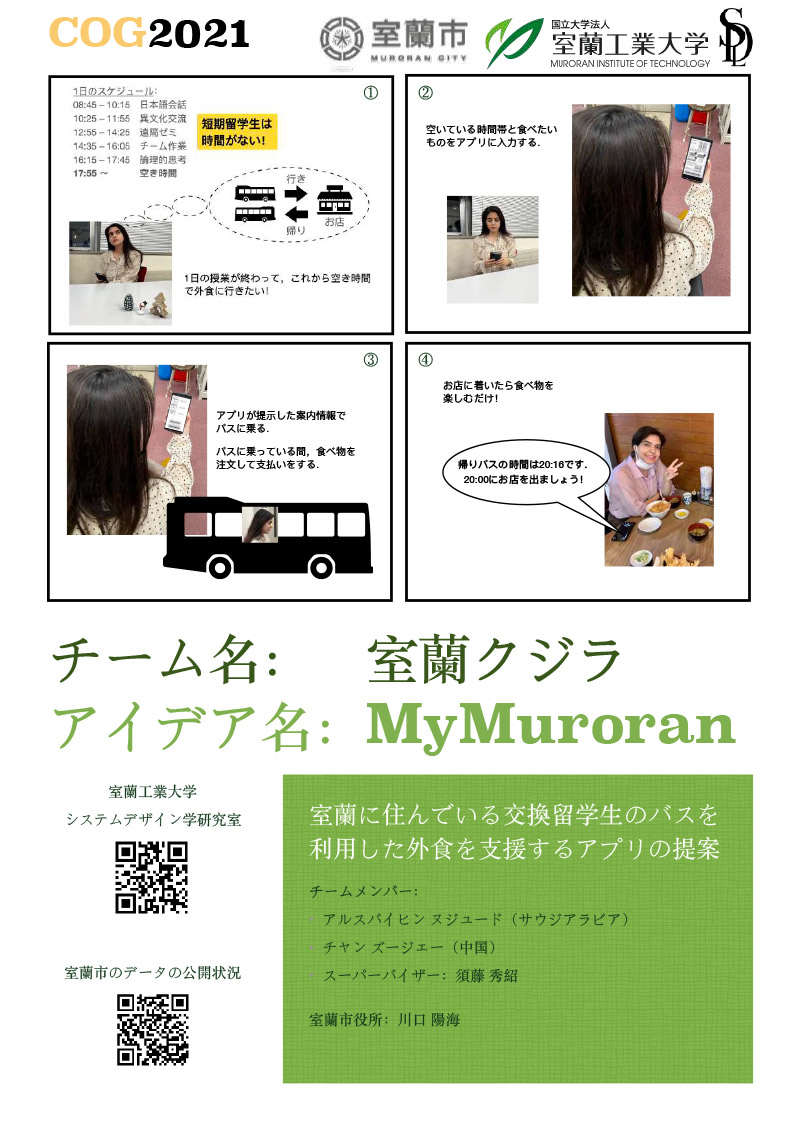
Muroran Whales
Muroran City, Hokkaido
Local issue: 「室蘭が好き。みんなで創る、住み続けたいまち」の実現へ!
Idea name: MyMuroran
 PDFを表示
PDFを表示
-
Otoleap
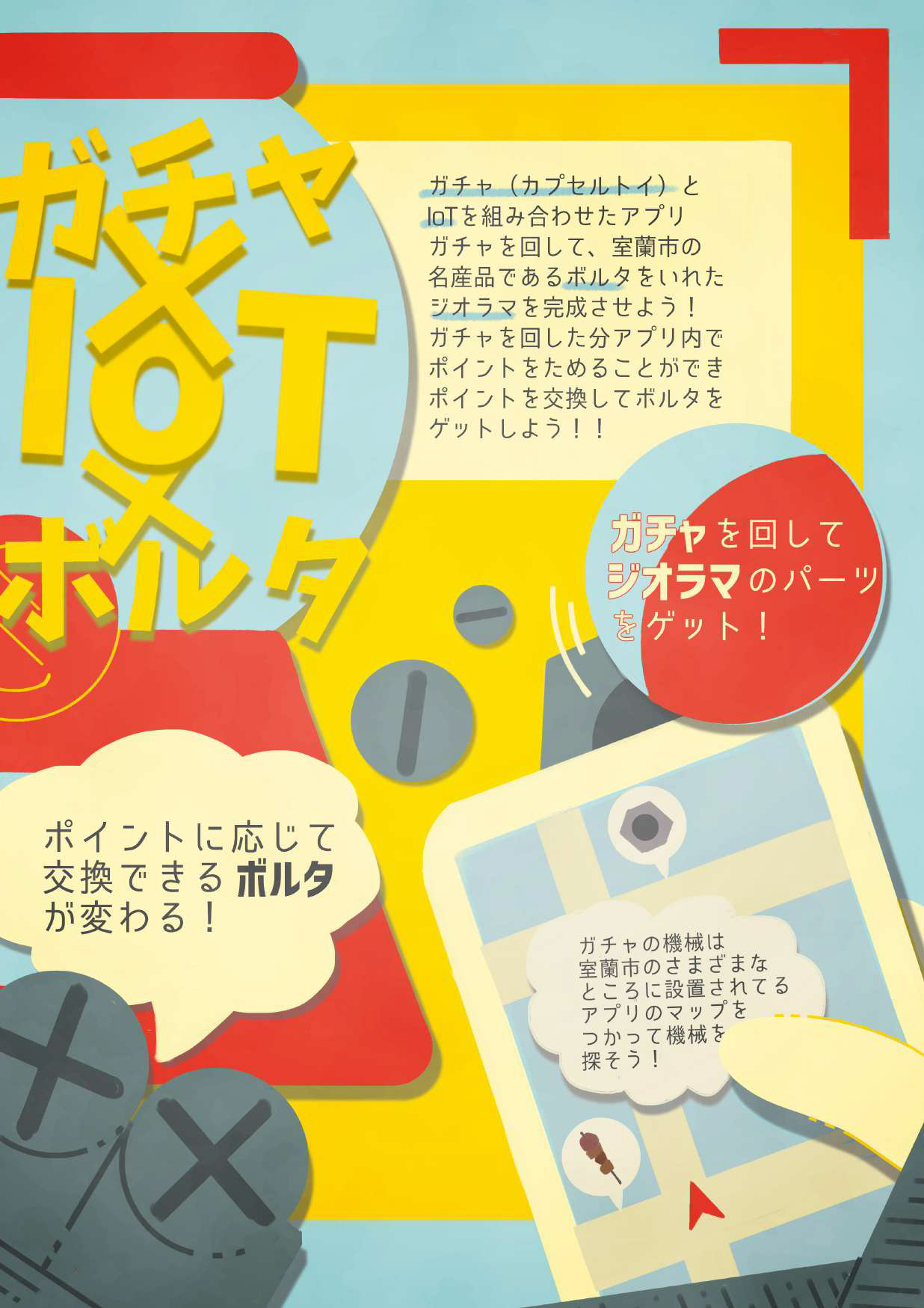
-
Leaders
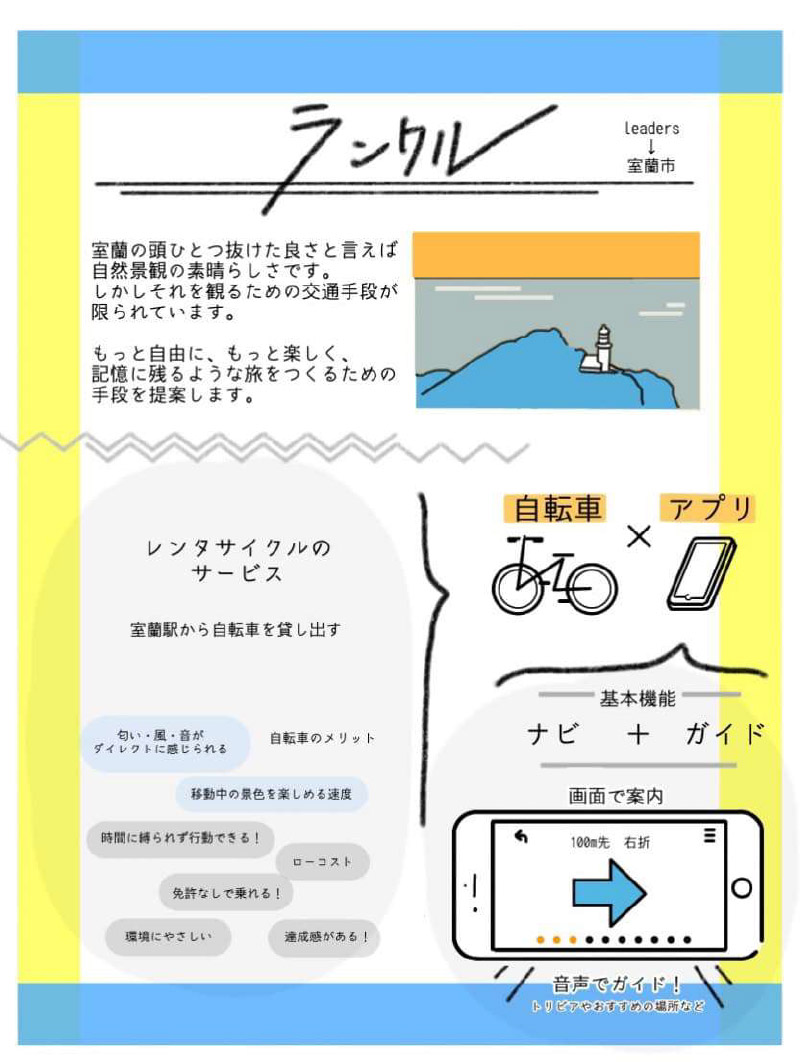
Leaders
Muroran City, Hokkaido
Local issue: Make Muroran's transportation more convenient!
Idea name: "Runkle" and rental bicycle to make sightseeing in Muroran more enjoyable by bicycle.
 PDFを表示
PDFを表示
-
Abe Seminar, Faculty of Sociology, Daito Bunka University
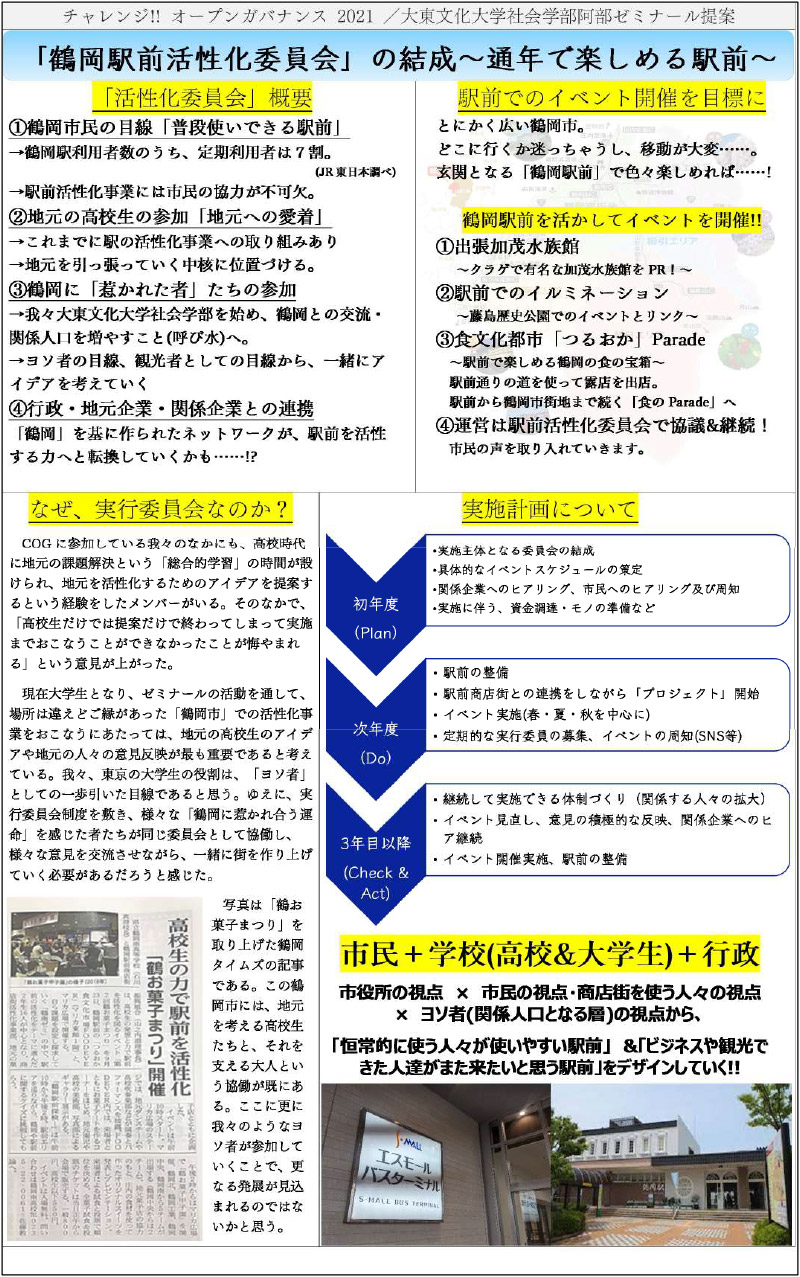
Abe Seminar, Faculty of Sociology, Daito Bunka University
Tsuruoka City, Yamagata Prefecture
Local issue: 東北一広い鶴岡市の中核駅である鶴岡駅前ににぎわいを取り戻す方法
Idea name: 「鶴岡駅前活性化委員会」の結成~通年で楽しめる駅前へ~
 PDFを表示
PDFを表示
-
Rediscover Tsuruoka! Project
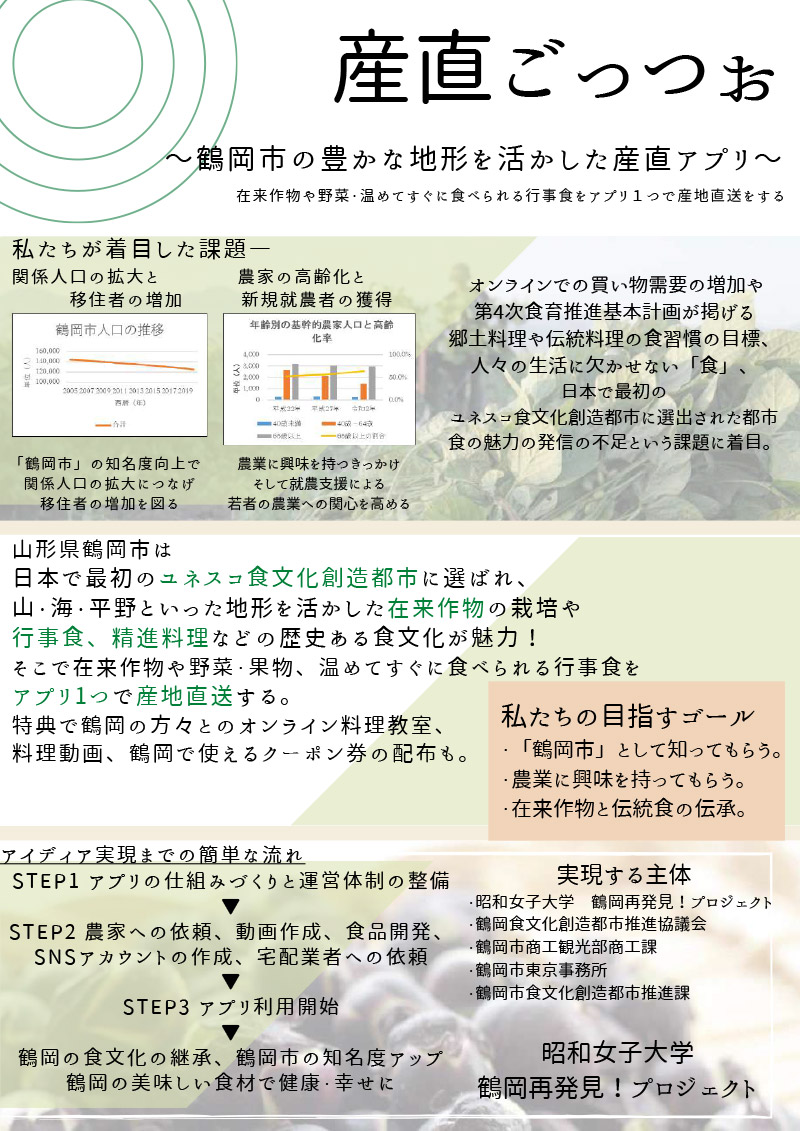
Rediscover Tsuruoka! Project
Tsuruoka City, Yamagata Prefecture
Local issue: 都市のブランディングによる鶴岡市の魅力向上
Idea name: 産直ごっつぉ~鶴岡市の豊かな地形を活かした産直アプリ~
 PDFを表示
PDFを表示
-
Heat Countermeasure Team, Rissho University
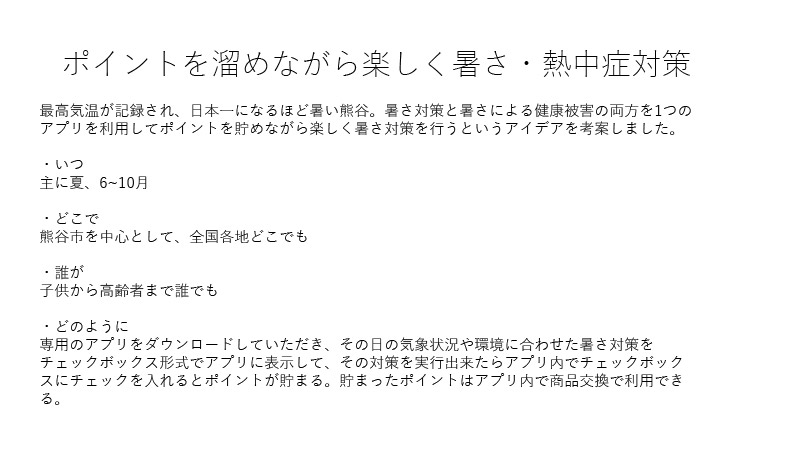
Heat Countermeasure Team, Rissho University
Kumagawa City, Saitama Prefecture
Local issue: 大学生・市民がスクラムを組んで取り組む「暑さ対策日本一の街」の推進
Idea name: ポイントを貯めながら楽しく暑さ・熱中症対策
 PDFを表示
PDFを表示
-
Kumatan!
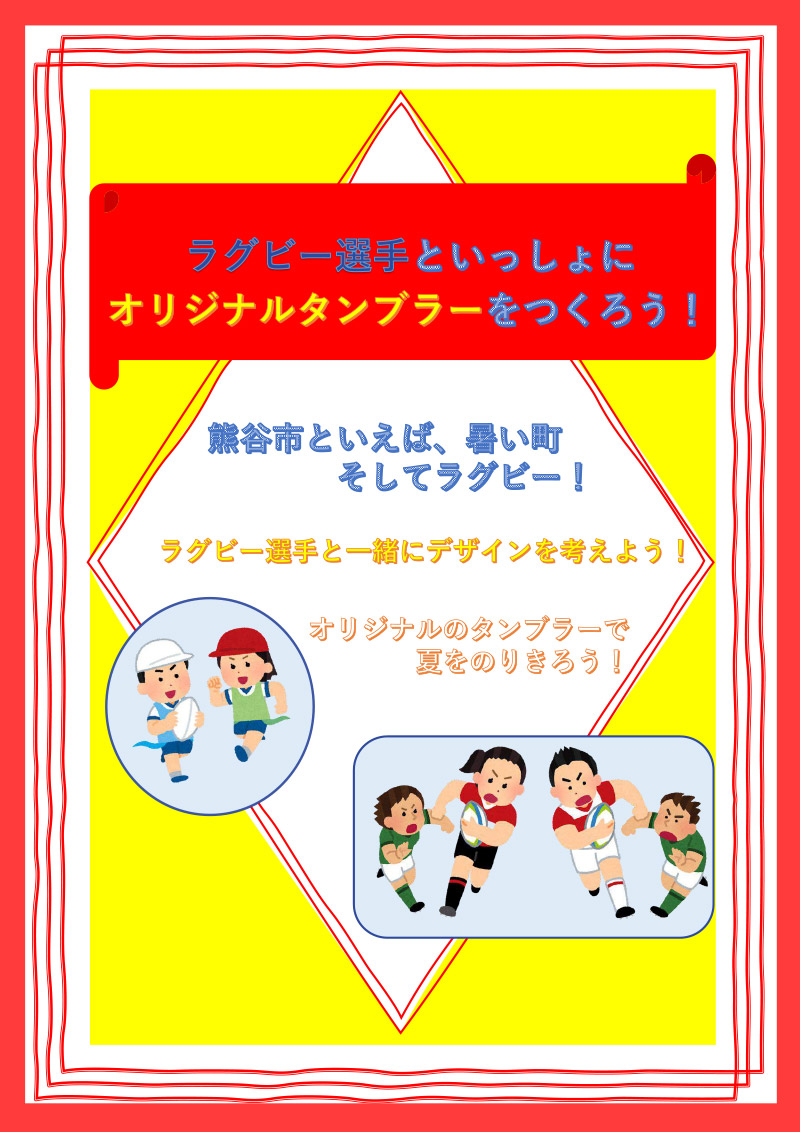
Kumatan!
Kumagawa City, Saitama Prefecture
Local issue: 大学生・市民がスクラムを組んで取組む「ラグビータウン熊谷」の活性化支援
Idea name: タンブラーから熊谷を元気に!
 PDFを表示
PDFを表示
-
Street Rugby
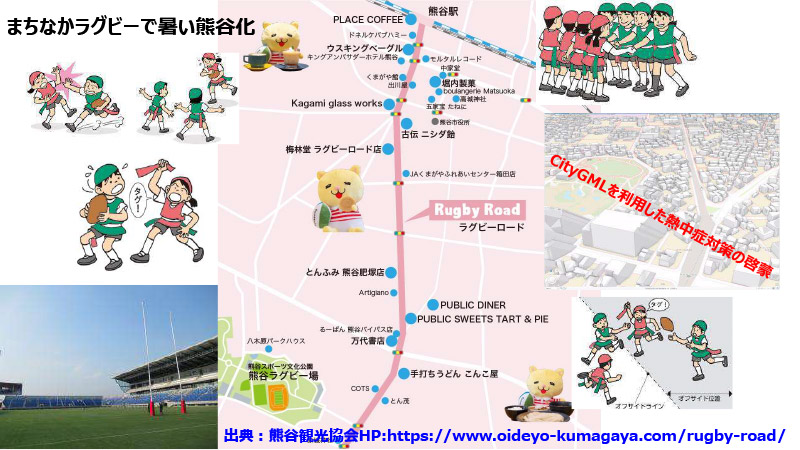
Street Rugby
Kumagawa City, Saitama Prefecture
Local issue: 大学生・市民がスクラムを組んで取組む「ラグビータウン熊谷」の活性化支援
Idea name: Street Rugbyで暑い熊谷化
 PDFを表示
PDFを表示
-
Grandchild Therapist
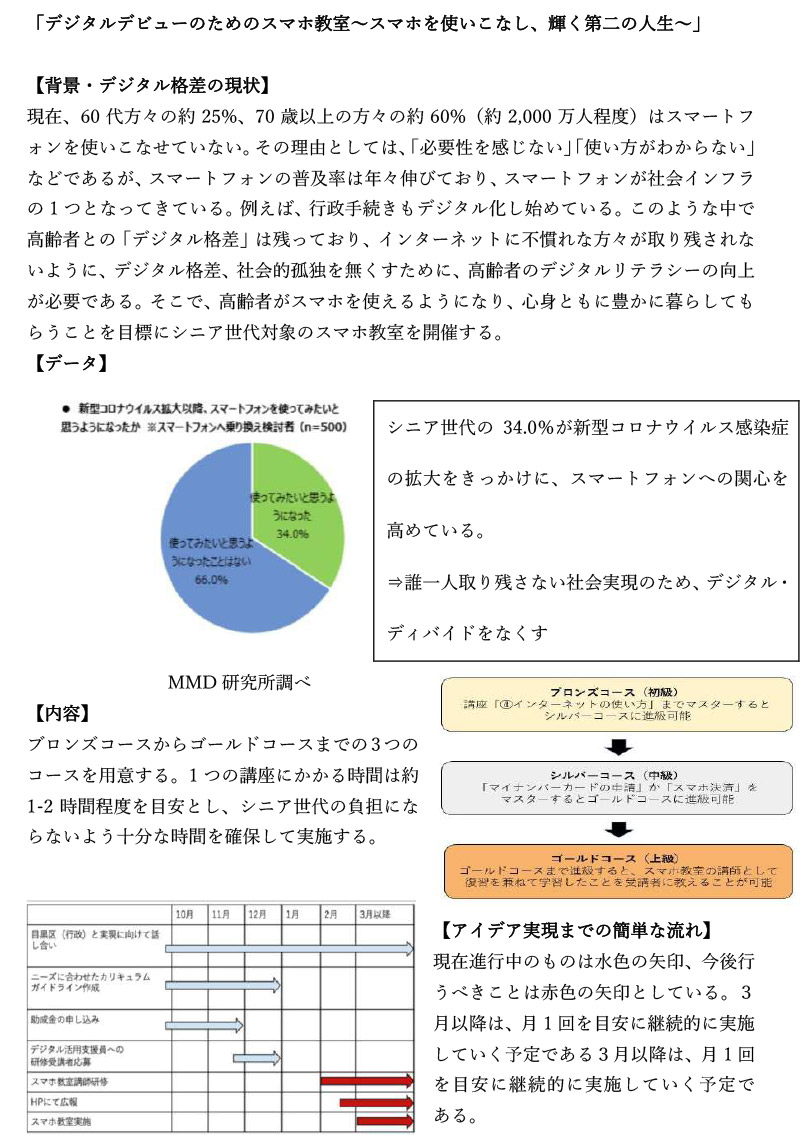
Grandchild Therapist
Meguro Wards, Tokyo
Local issue: デジタル・ディバイドの解消 ~情報格差の壁を超える~
Idea name: デジタルデビュー~スマホを使いこなし、輝く第二の人生~
 PDFを表示
PDFを表示
-
Tama City Youth Conference
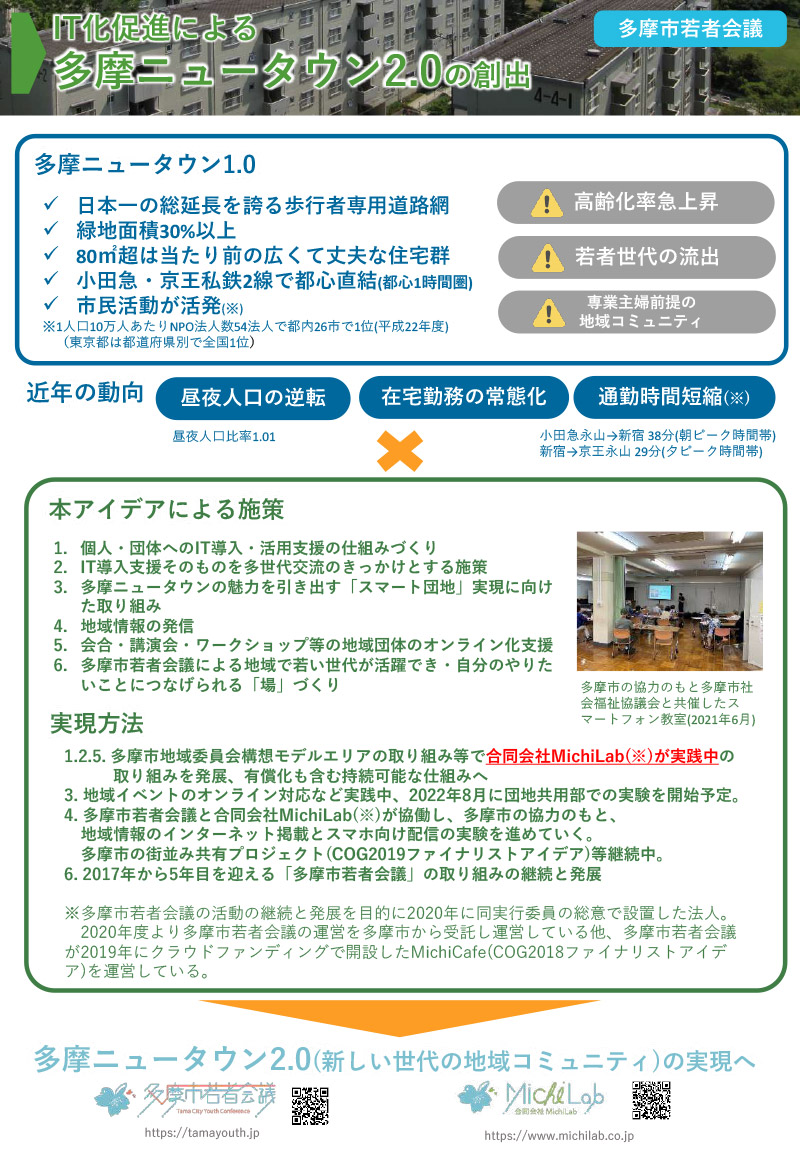
Tama City Youth Conference
Tama Wards, Tokyo
Local issue: IT化の促進による多摩ニュータウン2.0の創出
Idea name: IT化の促進による多摩ニュータウン2.0の創出
 PDFを表示
PDFを表示
-
Ferris University Disaster Countermeasures Study Group
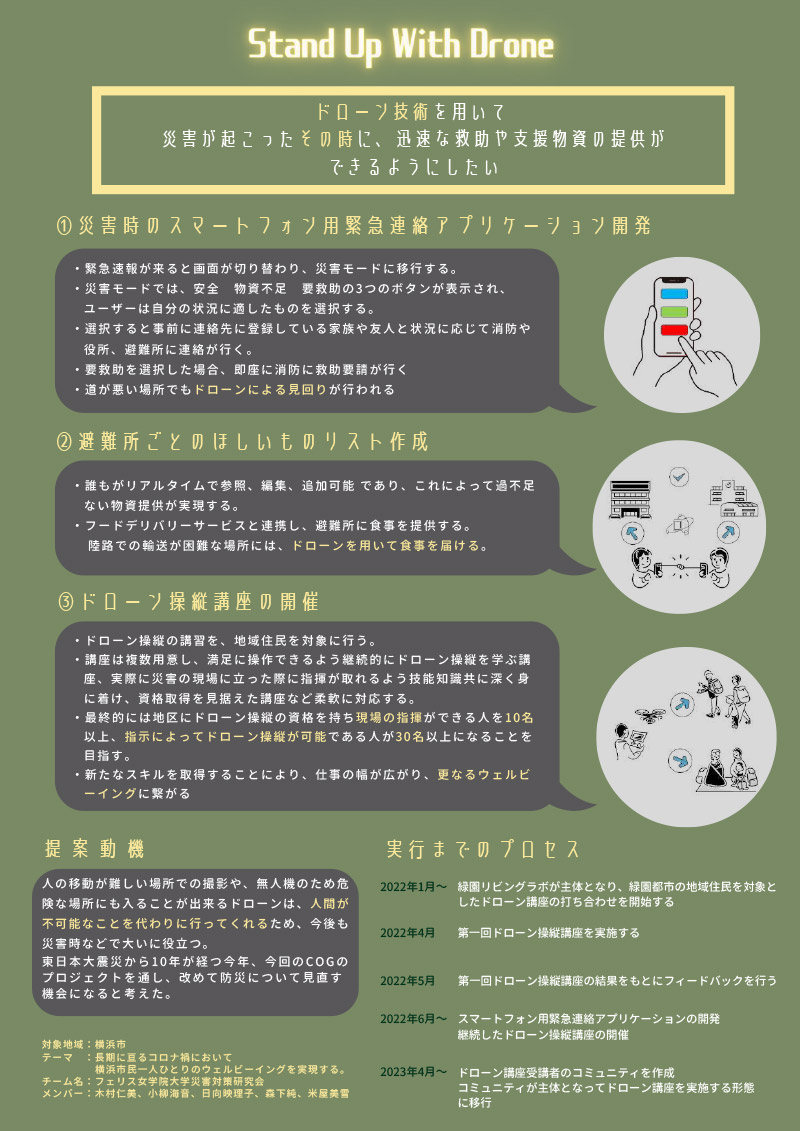
Ferris University Disaster Countermeasures Study Group
Yokohama City, Kanagawa Prefecture
Local issue: Achieving the wellbeing of every citizen of Yokohama during the long-term Coronavirus pandemic
Idea name: Stand Up With Drone
 PDFを表示
PDFを表示
-
Civic Tech Summit Kanazawa 2021 Management Team
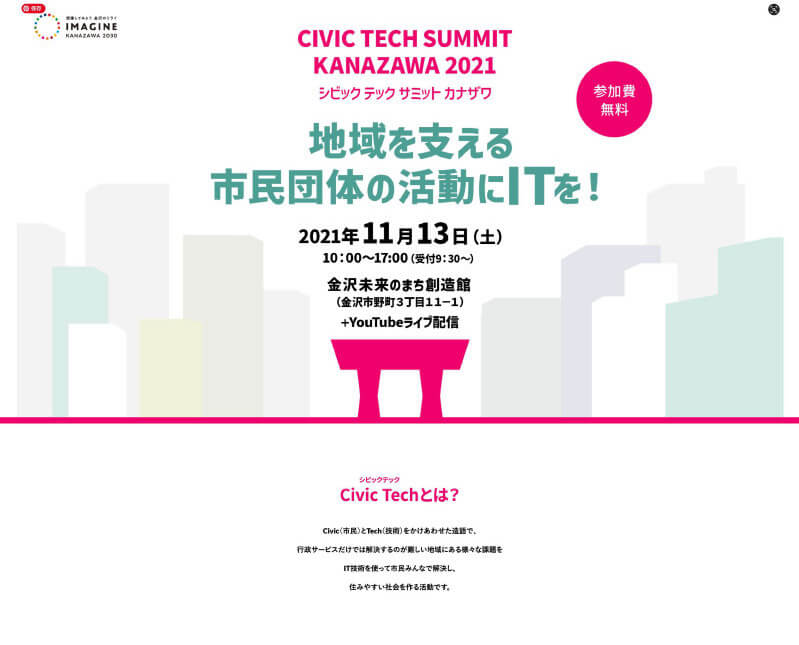
Civic Tech Summit Kanazawa 2021 Management Team
Kanazawa City, Ishikawa Prefecture
Local issue: 市民団体等へのシビックテックの浸透
Idea name: 地域を支える市民団体の活動にITを!
 PDFを表示
PDFを表示
-
Project Wakuwaku, Suminoe Ward
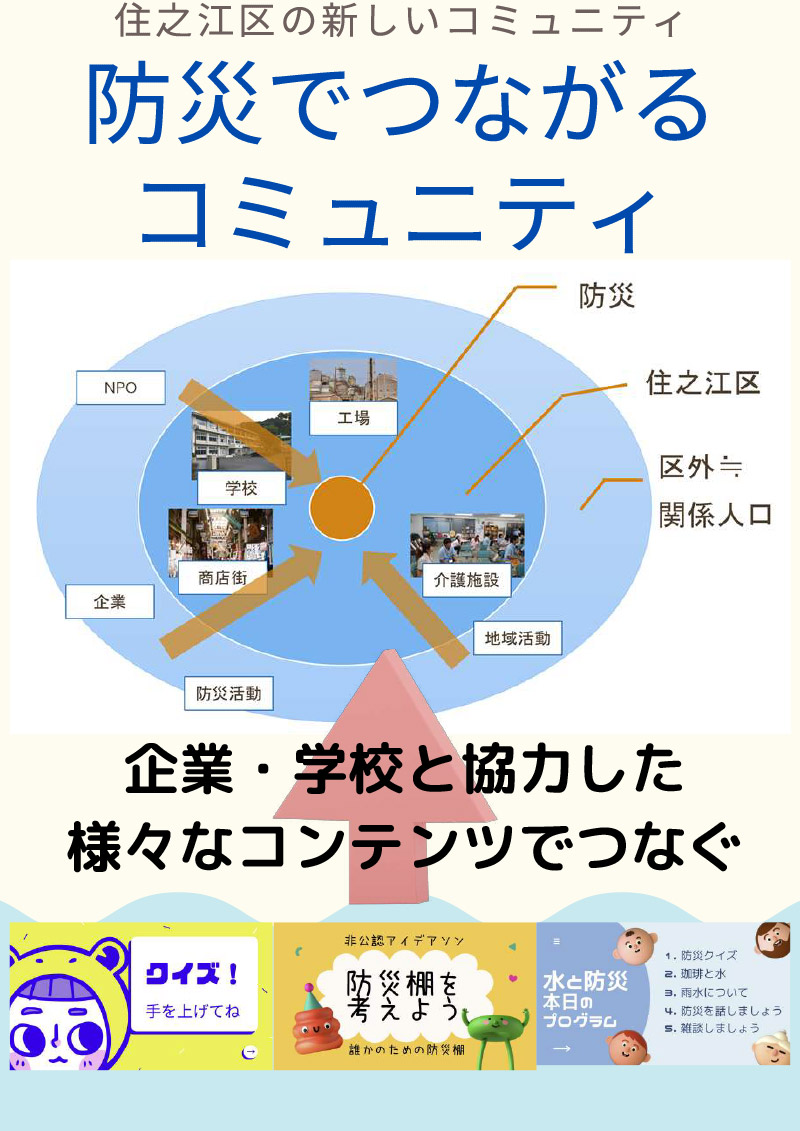
Project Wakuwaku, Suminoe Ward
Suminoe Ward, Osaka City, Osaka Prefecture
Local issue: デジタル元年にふさわしい、新しいコミュニティのカタチを考える
~住之江区大好き人口を増加させるアイデア募集~Idea name: 防災で区外まで拡張してつながるコミュニティ
 PDFを表示
PDFを表示
-
Kojima-zu
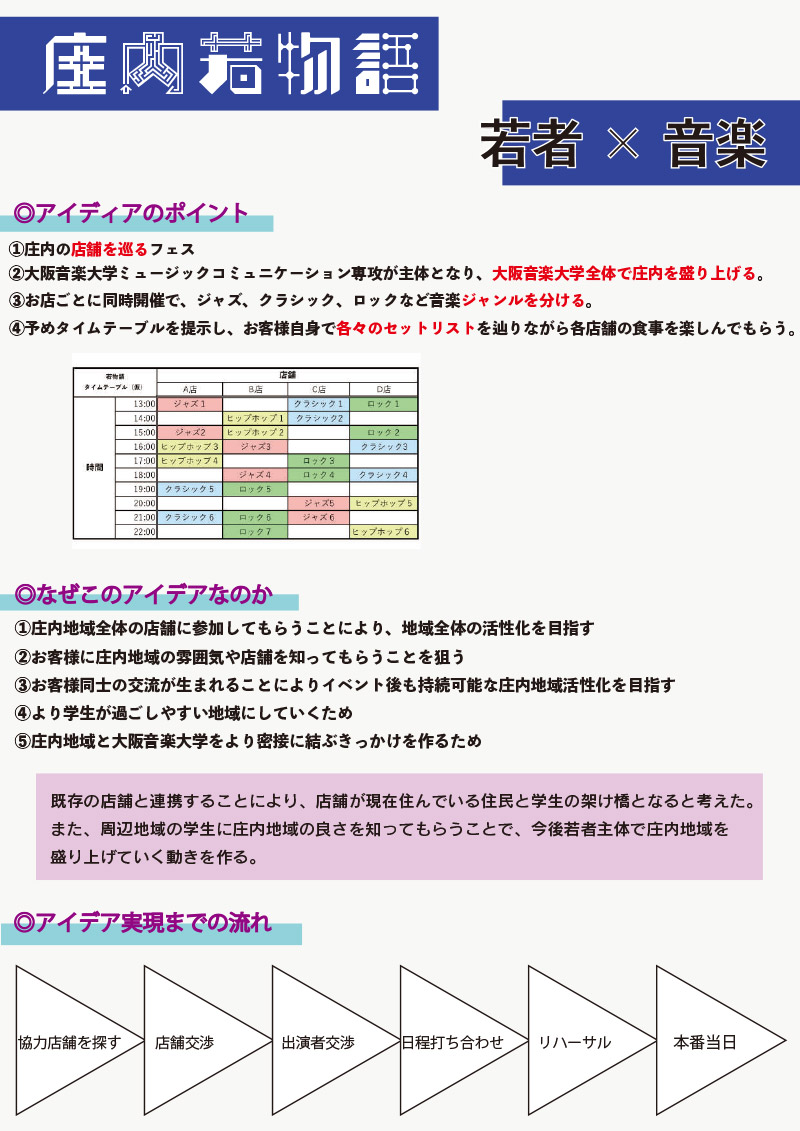
Kojima-zu
Toyonaka City, Osaka
Local issue: Improving the Attractiveness of the Town by Utilizing Local Resources
Idea name: 庄内若物語
 PDFを表示
PDFを表示
-
Yin-Yang Tourism Team, STEAM Special Lecture, Hyogo Prefectural Kakogawa Higashi High School
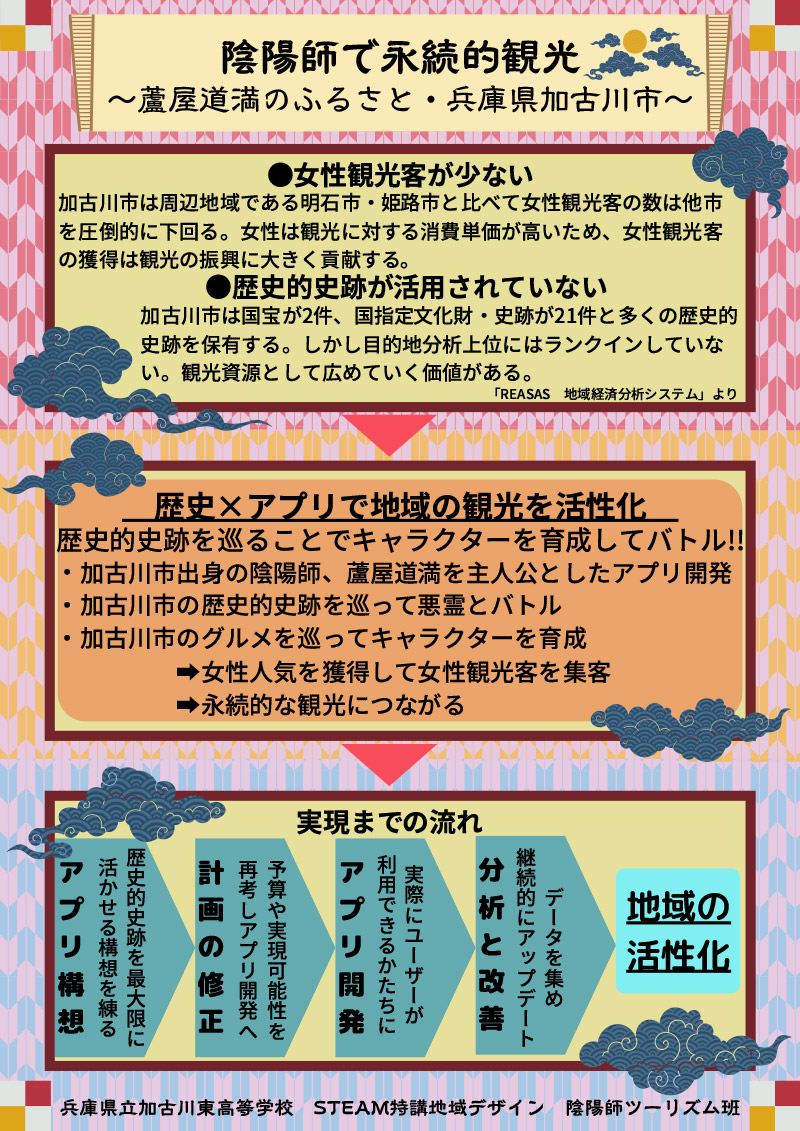
Yin-Yang Tourism Team, STEAM Special Lecture, Hyogo Prefectural Kakogawa Higashi High School
Kakogawa City, Hyogo Prefecture
Local issue: Application of Welpy Point to historical heritage
Idea name: Sustainable Tourism in Yin-Yang – Home of the Yin-Yang Master Doman Ashiya
 PDFを表示
PDFを表示
-
Project Mita, Kishigami Laboratory
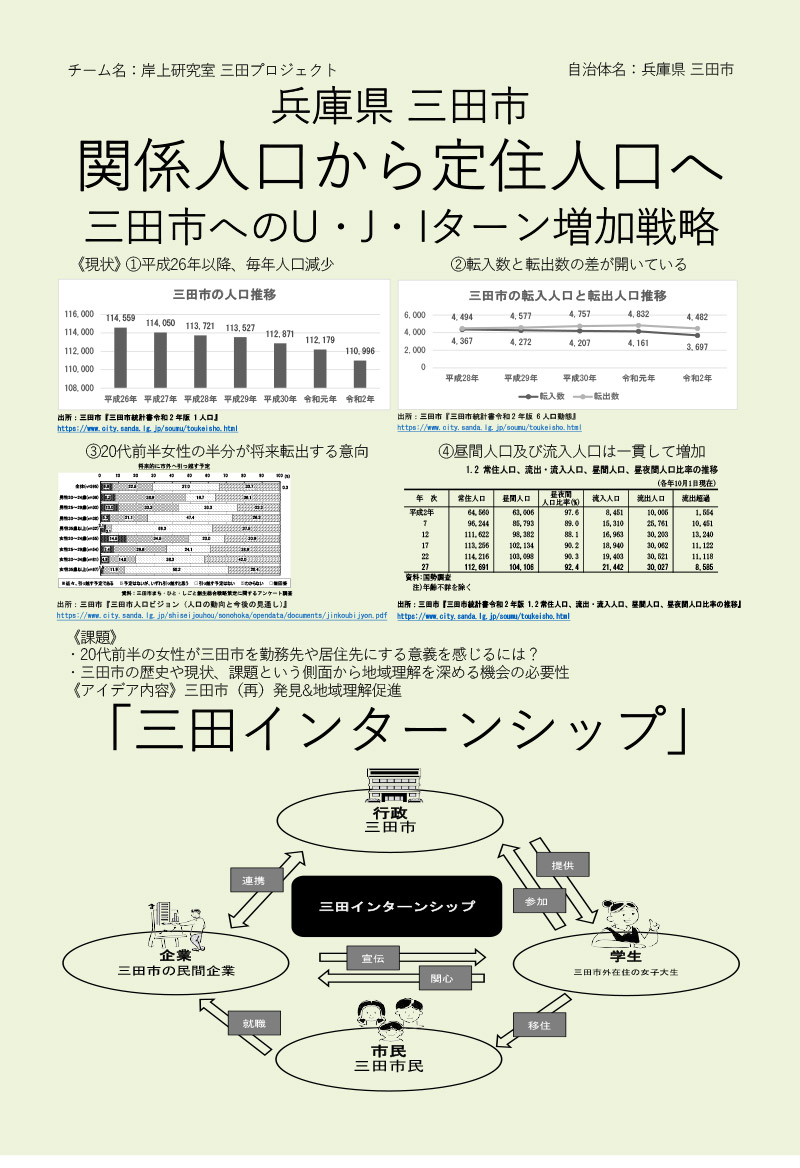
Project Mita, Kishigami Laboratory
Sanda City, Hyogo Prefecture
Local issue: Sanda City, Hyogo Prefectureを舞台とした定住人口・交流人口・関係人口の増加戦略
Idea name: 関係人口から定住人口へ 三田市へのU・I・Jターン増加戦略
 PDFを表示
PDFを表示
-
Project Team Tokiwa Park Revitalization
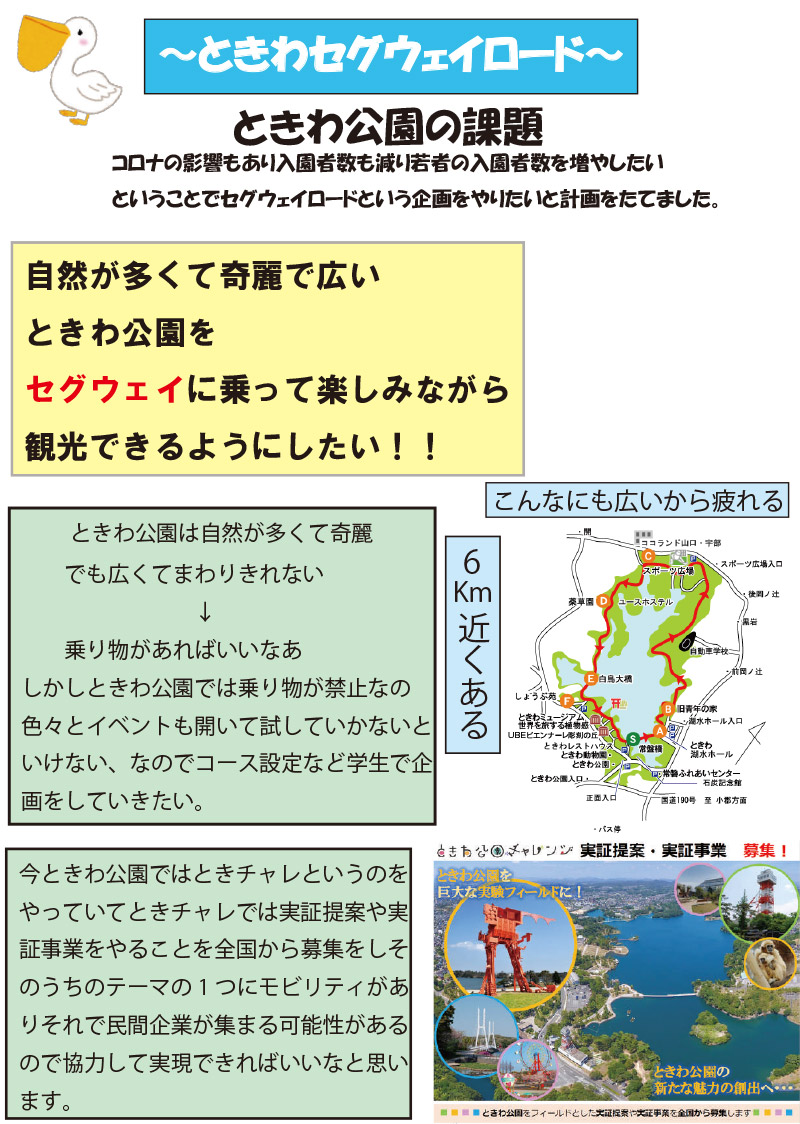
Project Team Tokiwa Park Revitalization
Ube City, Yamaguchi Prefecture
Local issue: ときわ公園の観光施設としての魅力向上
Idea name: ときわセグウェイロード
 PDFを表示
PDFを表示
-
Yoga Park Corps
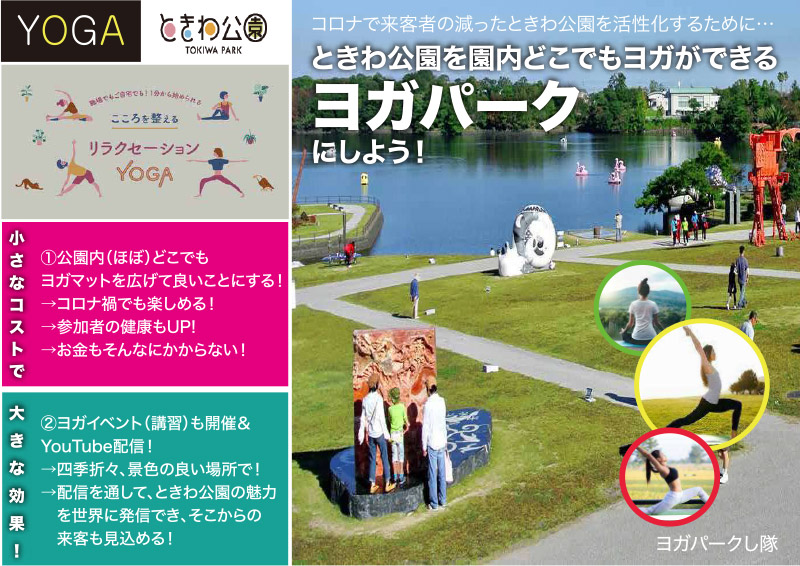
Yoga Park Corps
Ube City, Yamaguchi Prefecture
Local issue: ときわ公園の観光施設としての魅力向上
Idea name: 公園どこでもヨガができるヨガパーク!
 PDFを表示
PDFを表示
-
Katsuhiko Kawai Seminar Graduation Production Team
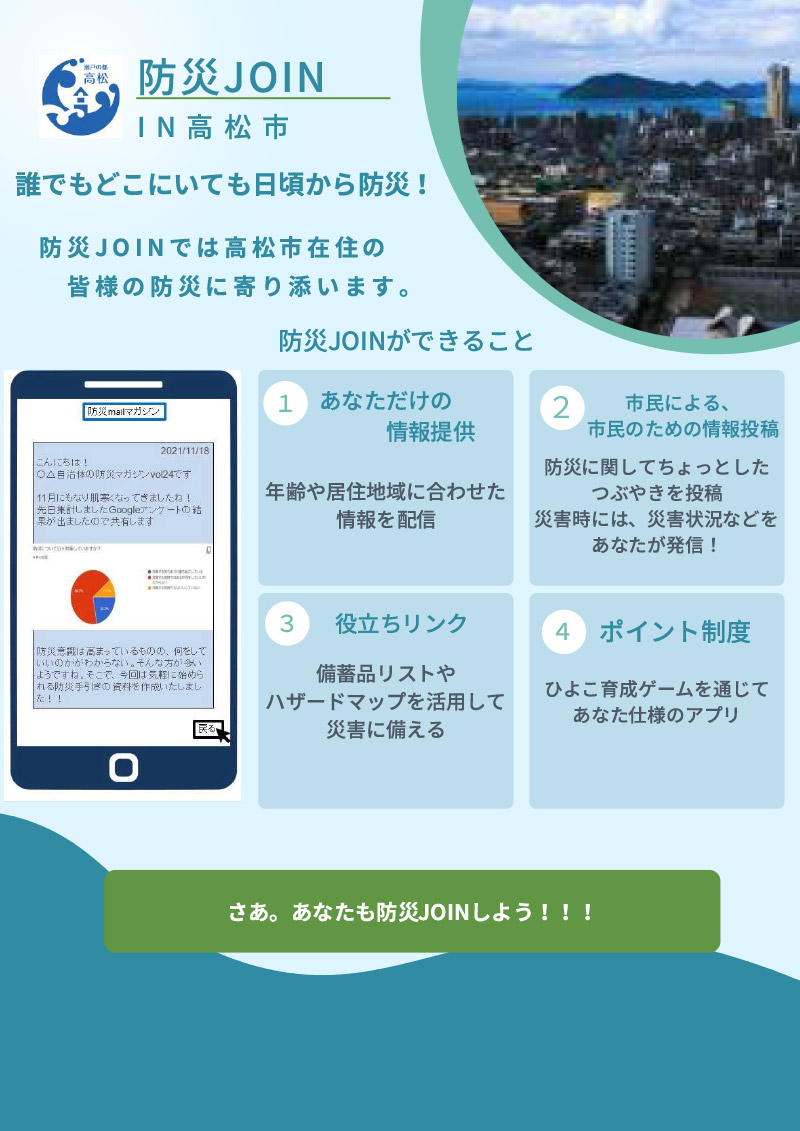
Katsuhiko Kawai Seminar Graduation Production Team
Takamatsu City, Kagawa Prefecture
Local issue: 『~持続的に成長し続ける都市~ スマートシティたかまつ』の実現にむけて
Idea name: 防災JOIN
 PDFを表示
PDFを表示
-
Kobayashi Seminar, Kitakyushu City University
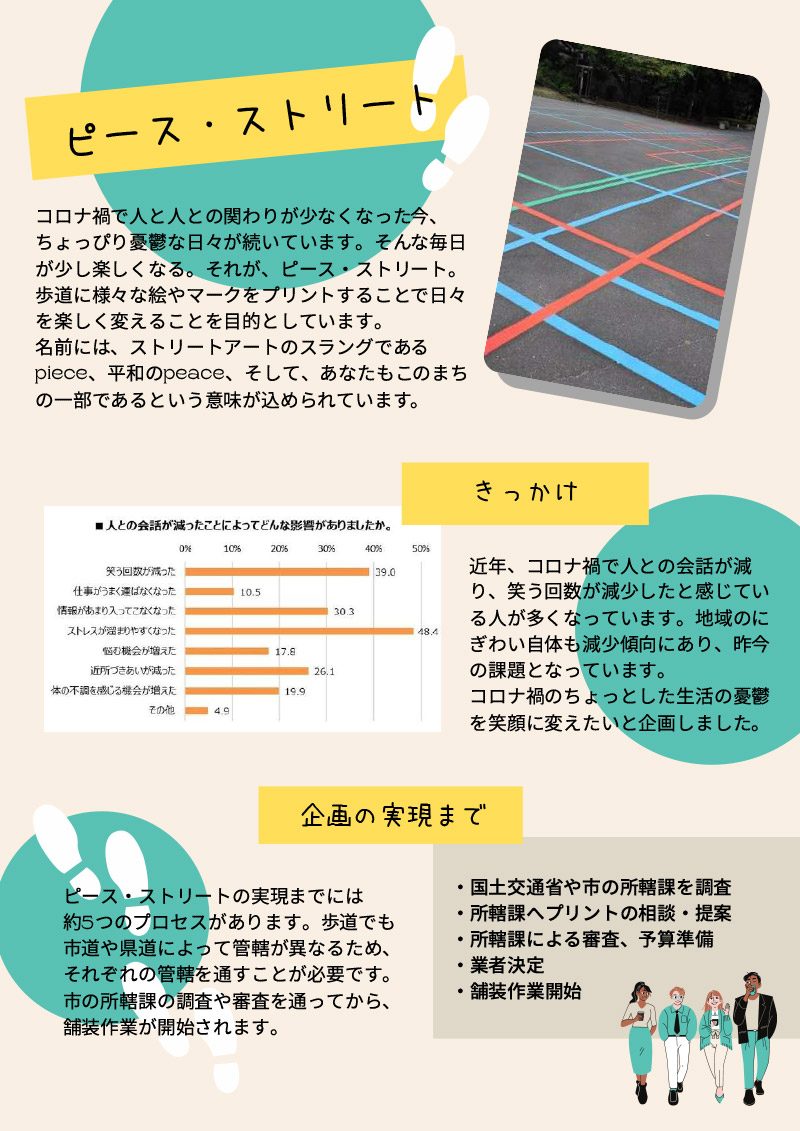
Kobayashi Seminar, Kitakyushu City University
Kitakyushu City, Fukuoka Prefecture
Local issue: 新型コロナウイルス感染症の影響によるコミュニティ衰退への対策
Idea name: ピース・ストリート
 PDFを表示
PDFを表示





![[Data] You can confirm the facts and provide support for your statements / You can promote behavioral change by visualizing the data! | [Design] Approach the origin of the problem by sympathizing with the parties / Make future hypotheses and think about ideas! | [Digital] A catalyst for the transformation of 21st century society / Behavioral changes and communities will expand](img/intro/3d.png)

 Flyer
Flyer
 Flyer
Flyer
 Flyer
Flyer
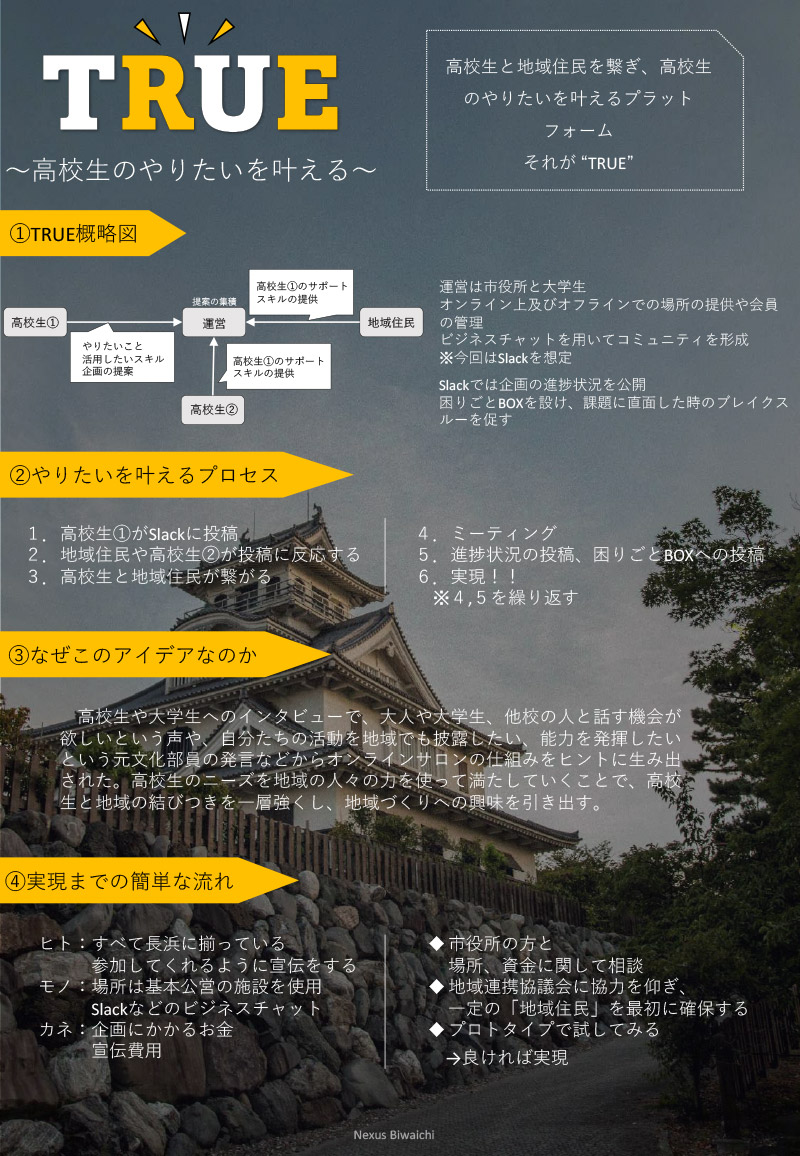 Flyer
Flyer
 Flyer
Flyer
 Flyer
Flyer
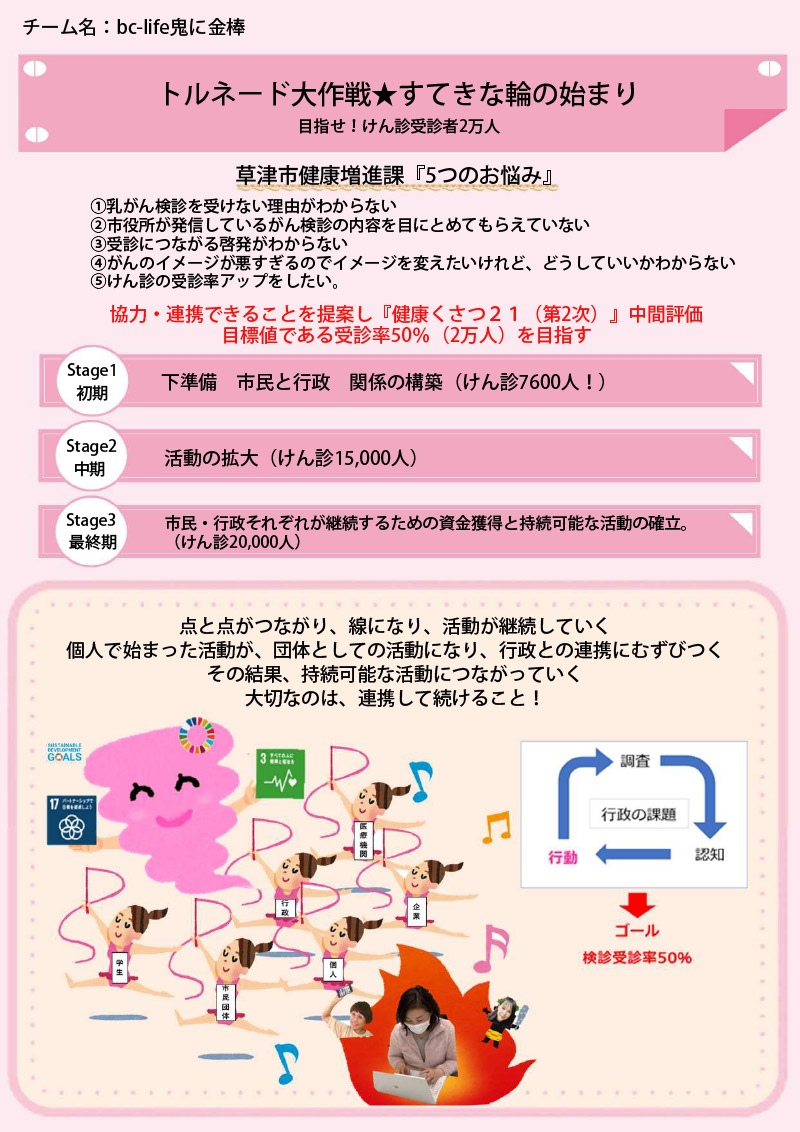 Flyer
Flyer
 Flyer
Flyer
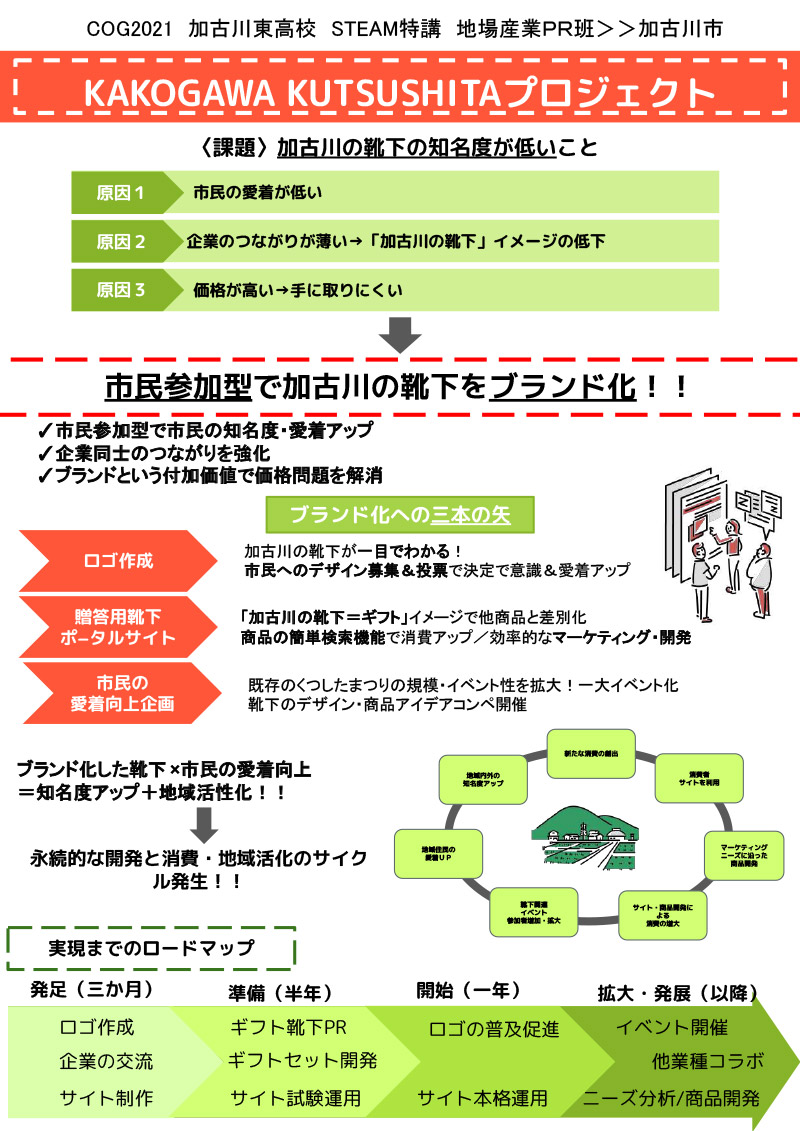 Flyer
Flyer
 Flyer
Flyer
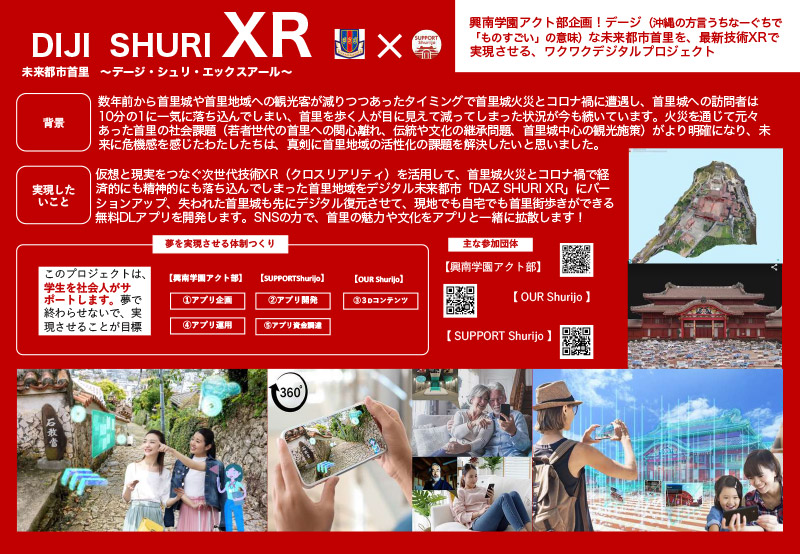 Flyer
Flyer
